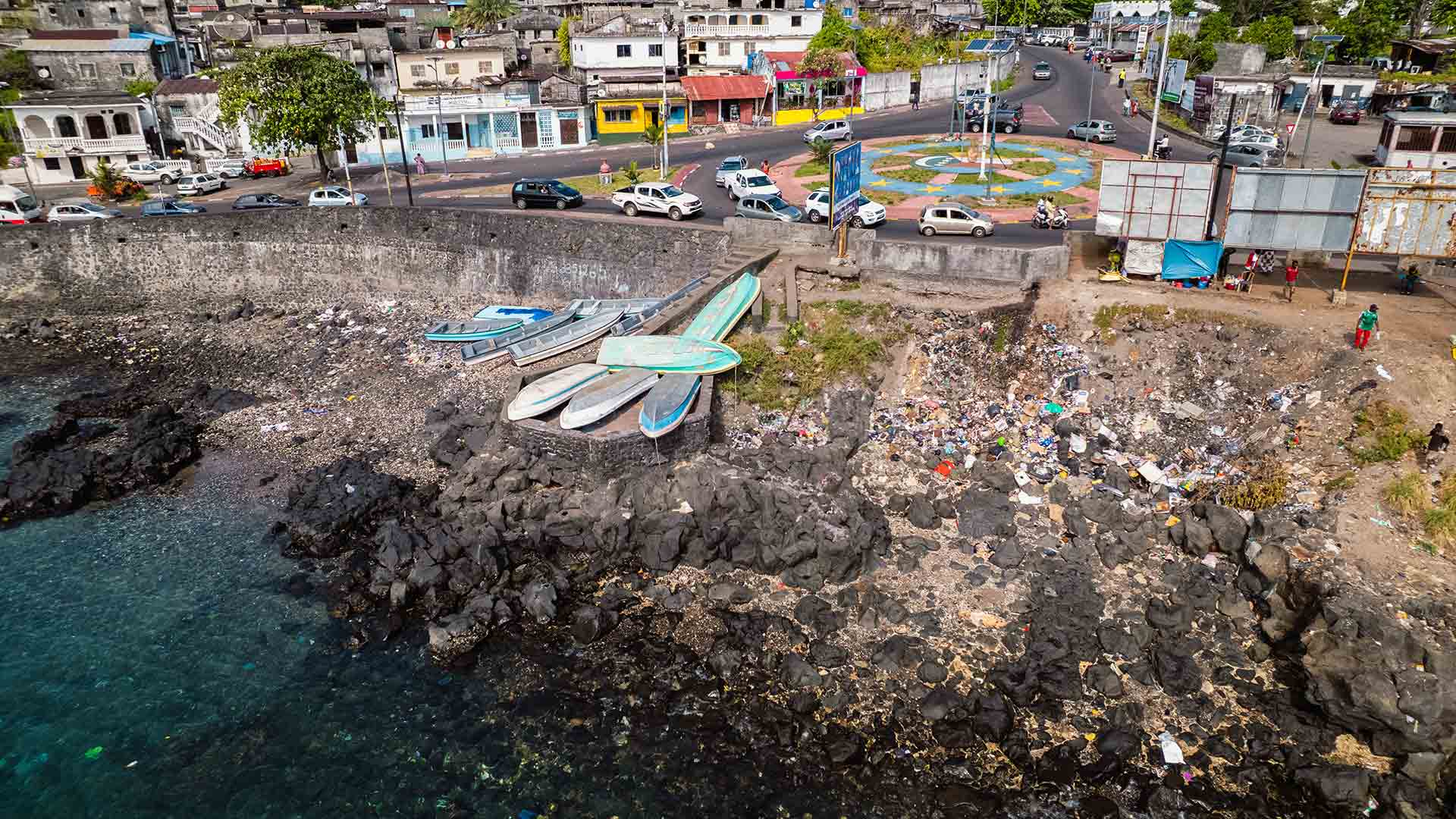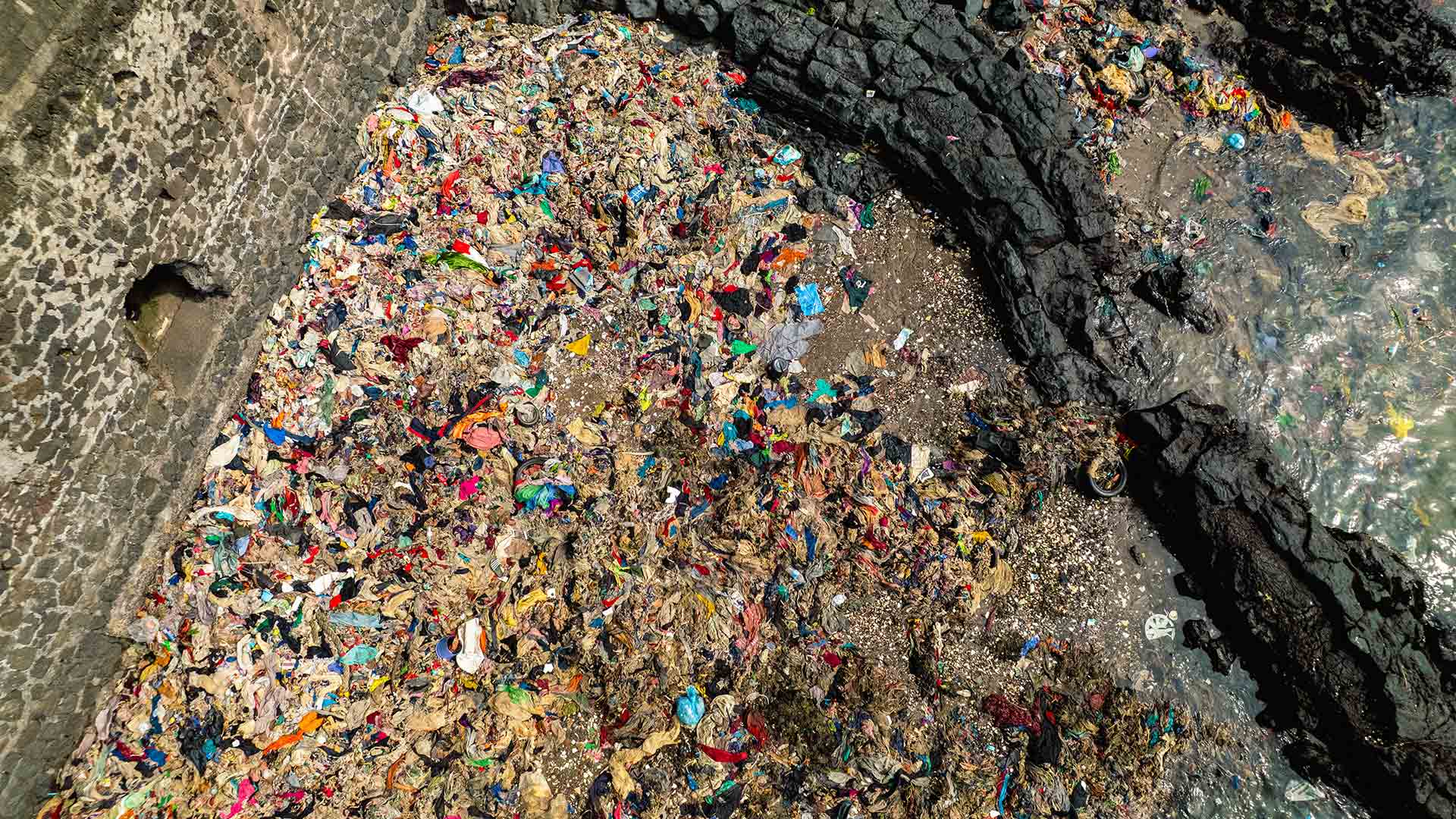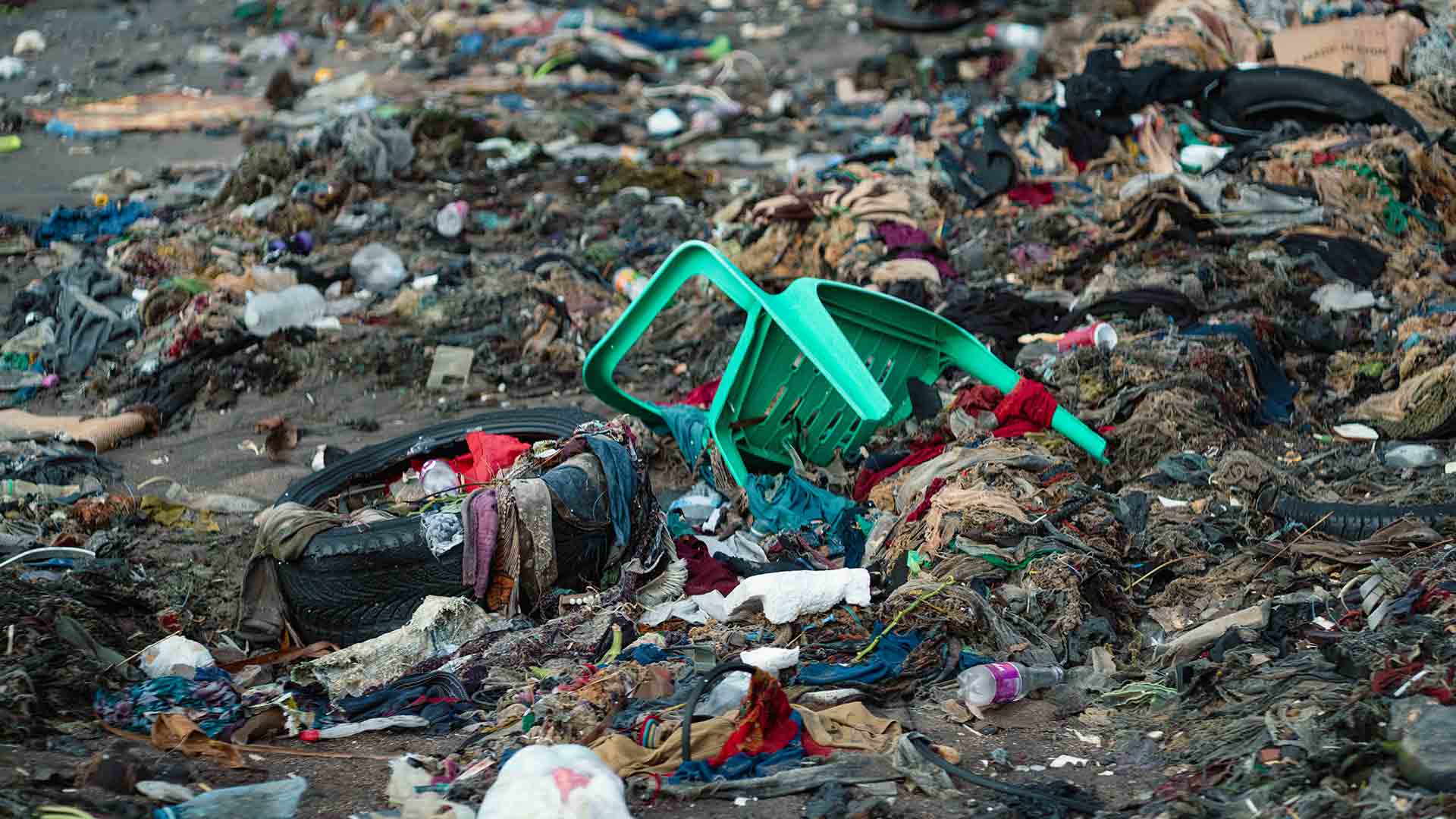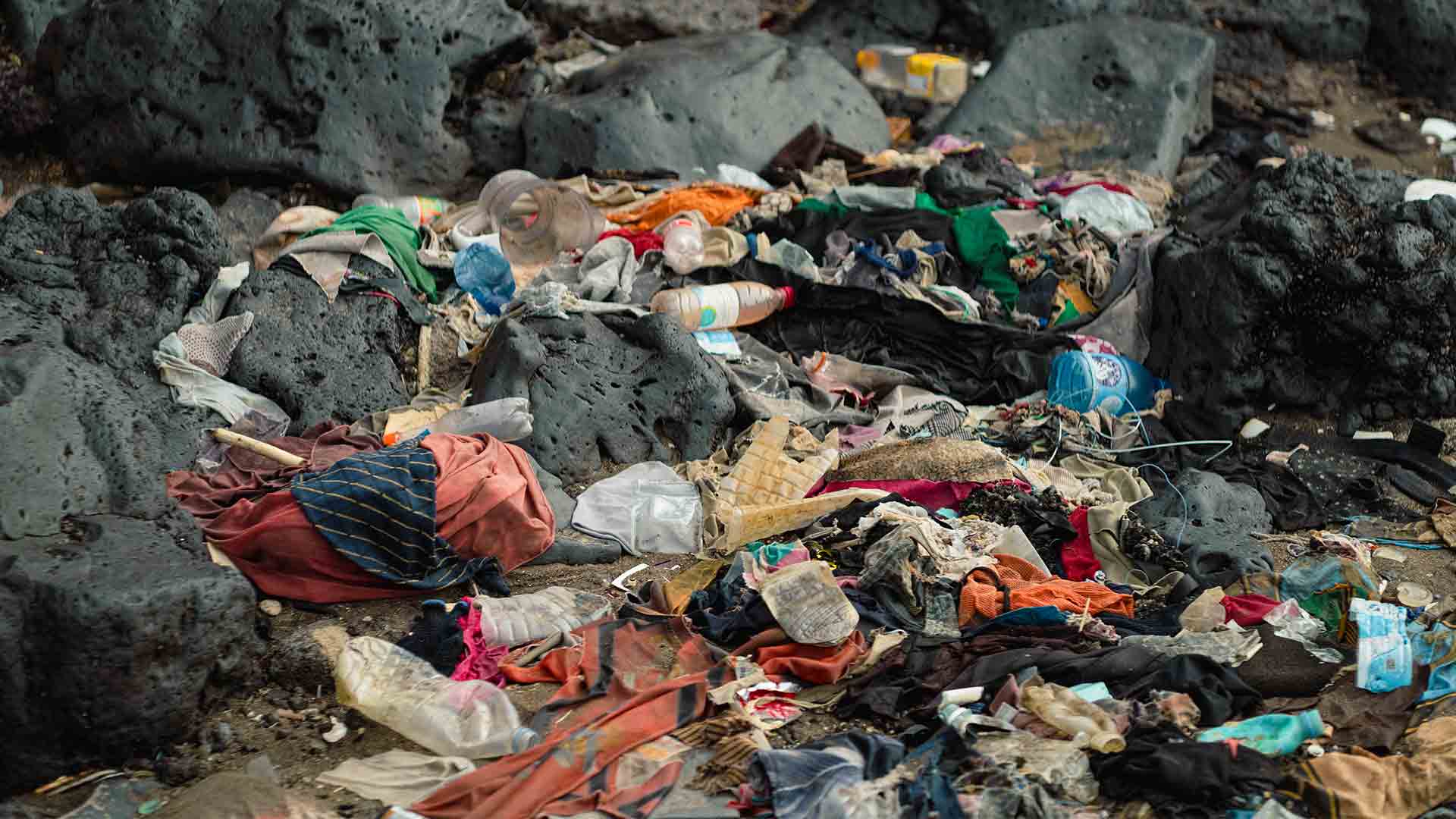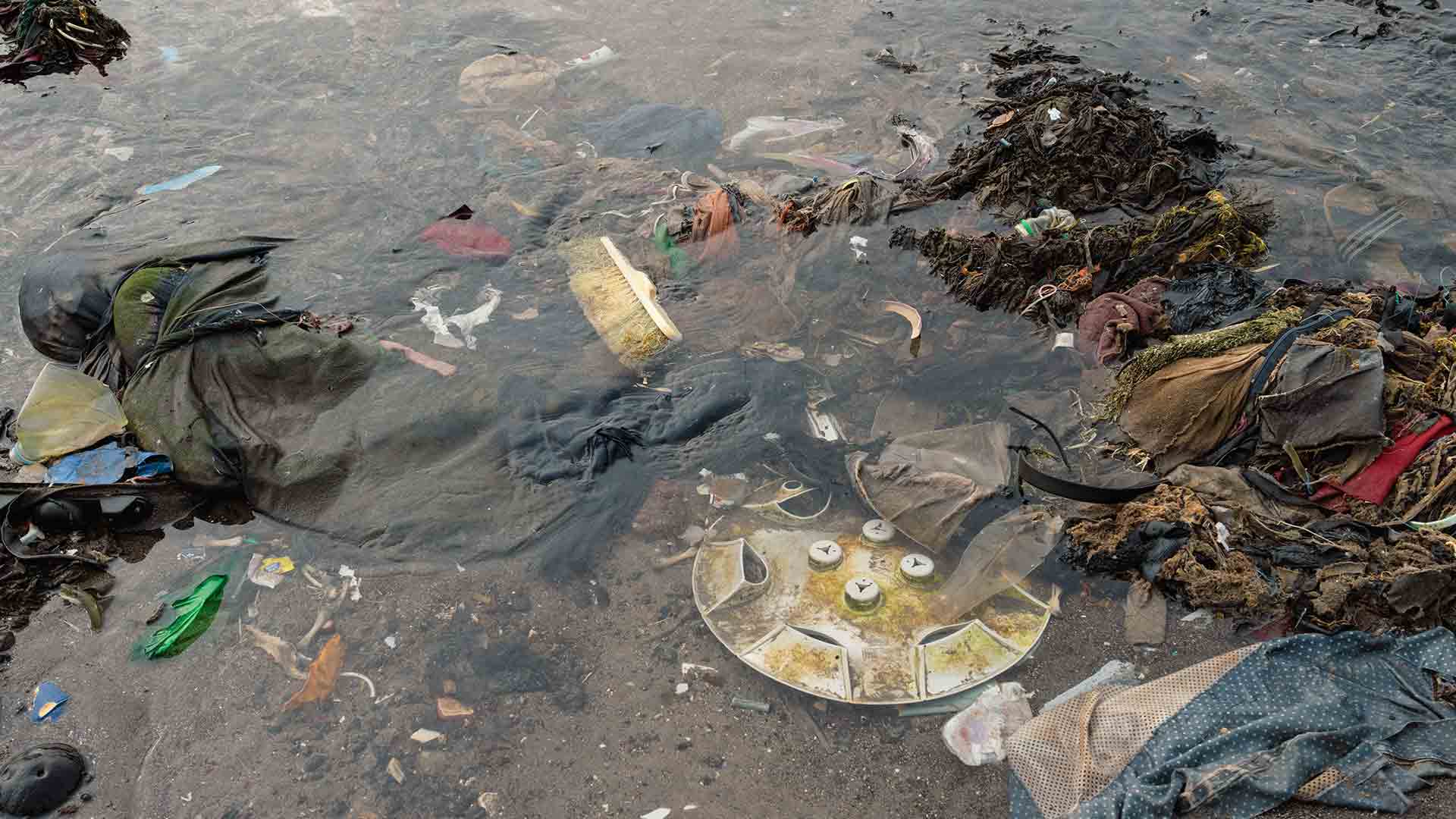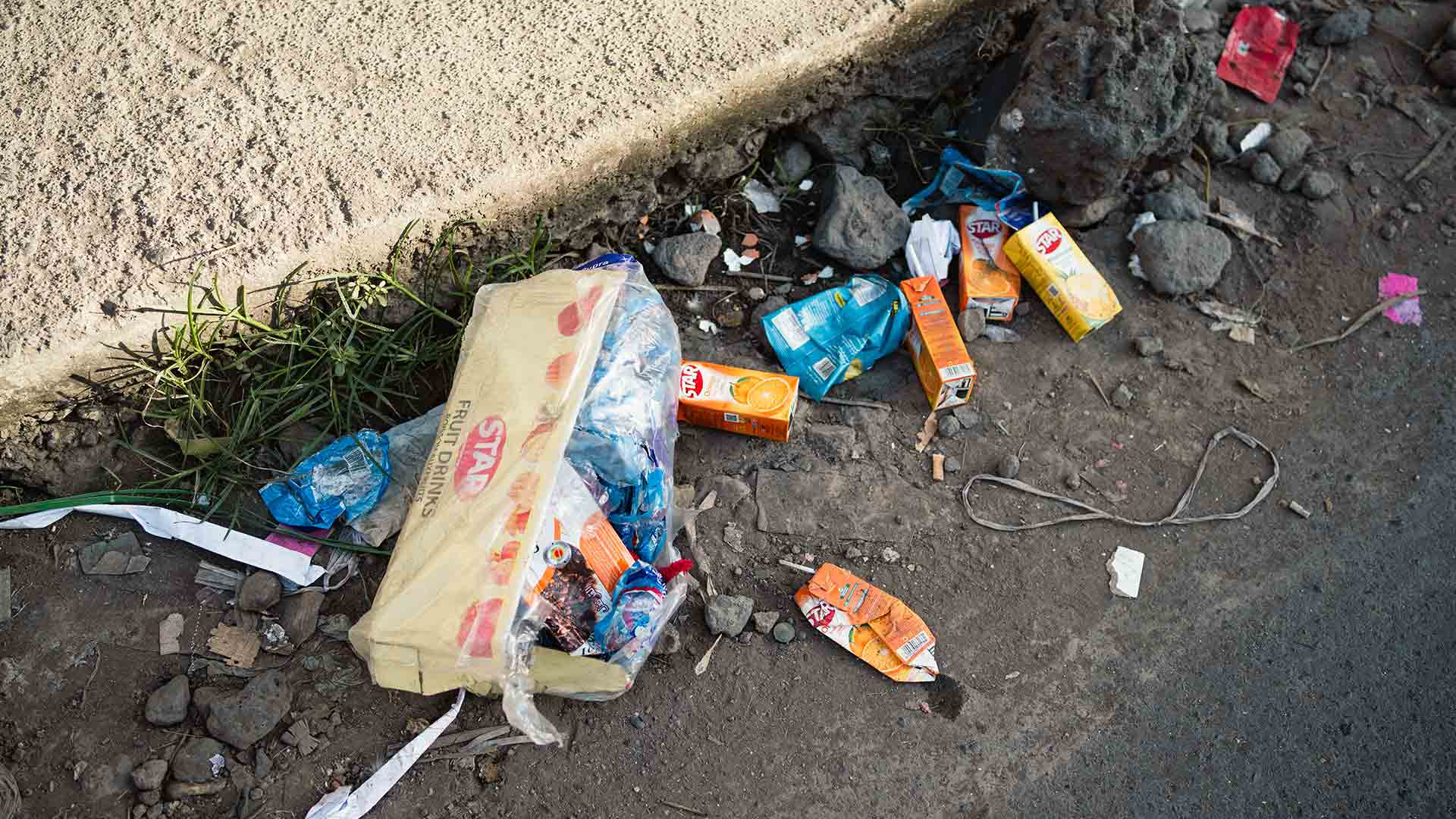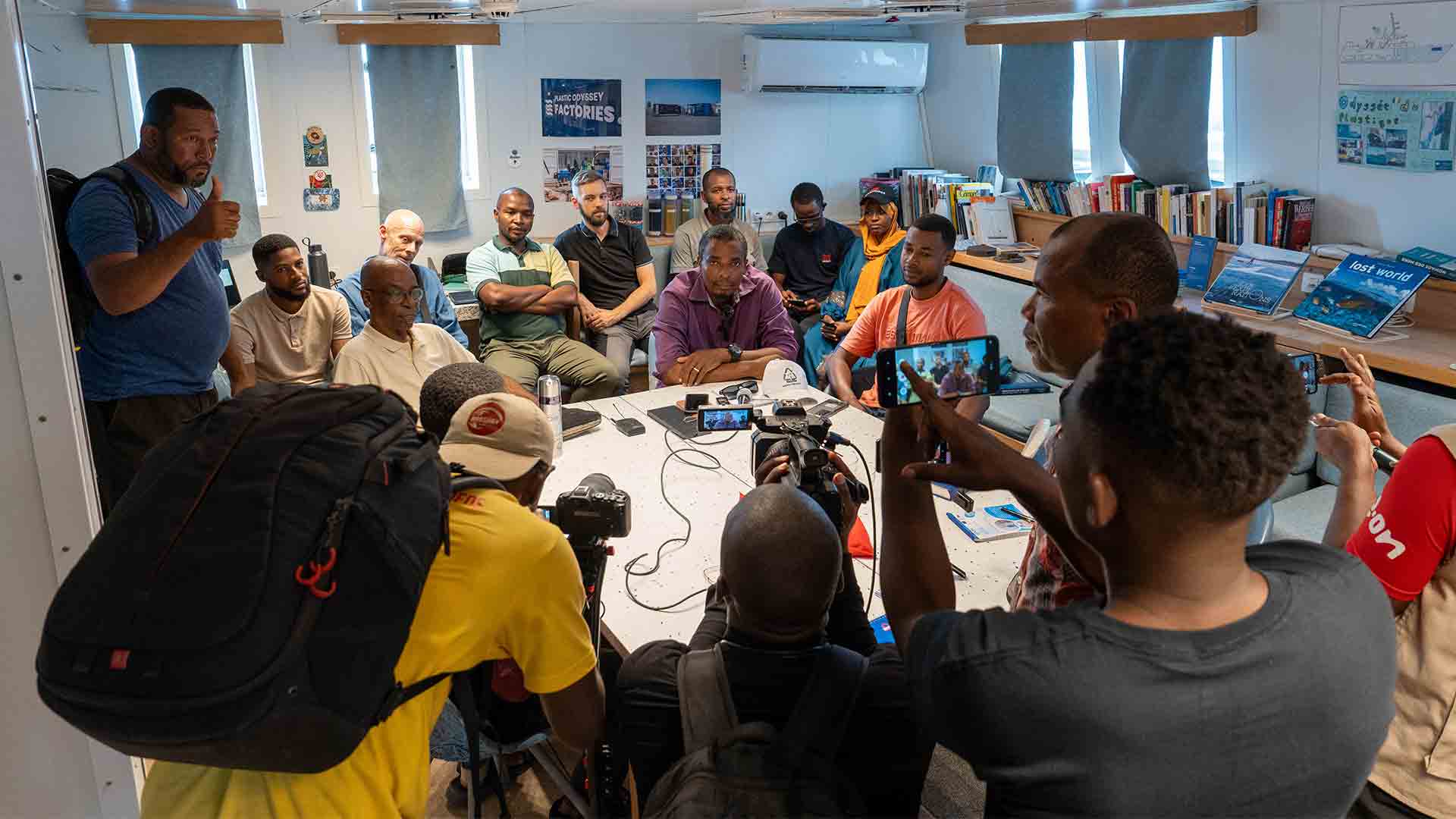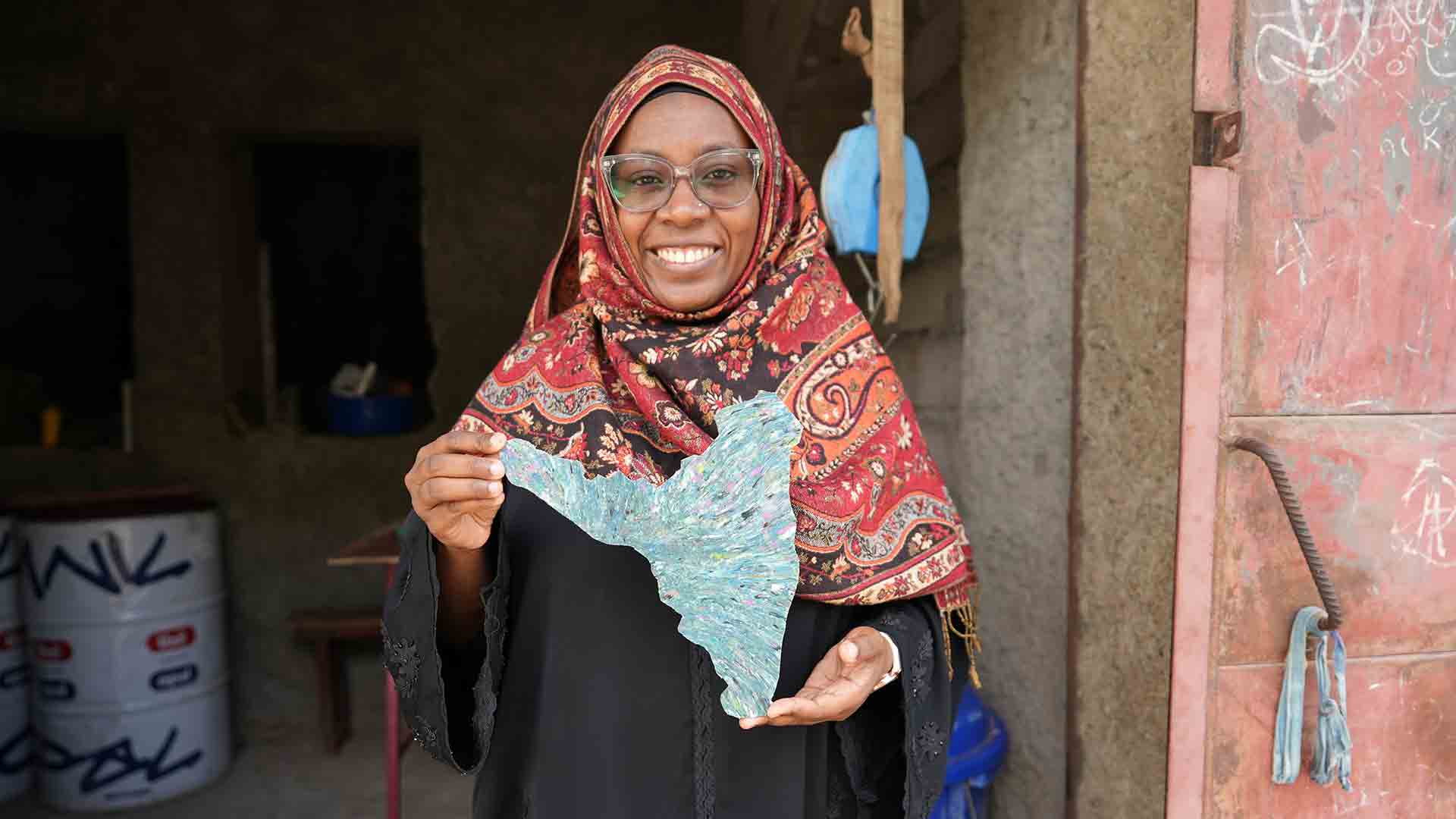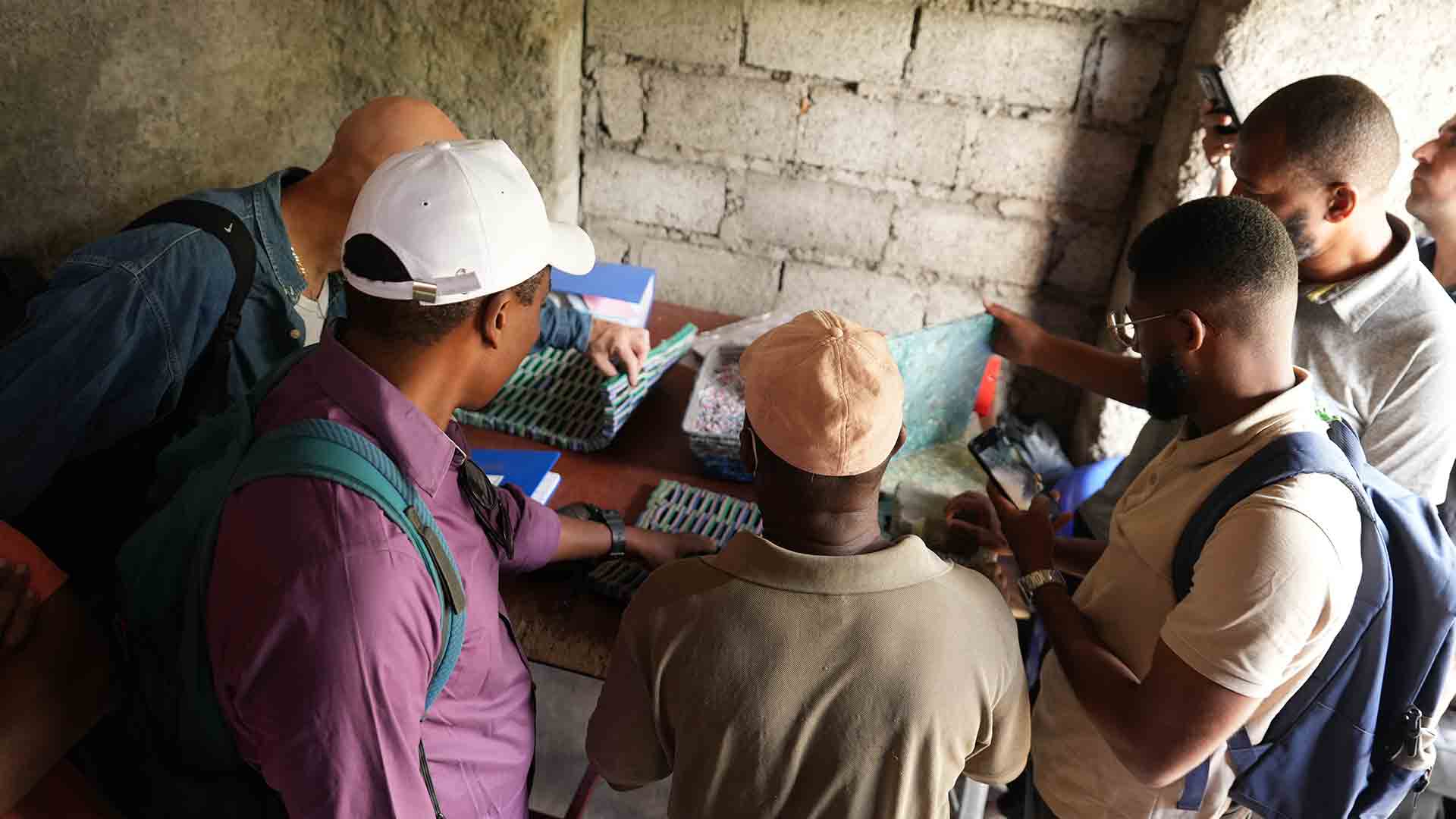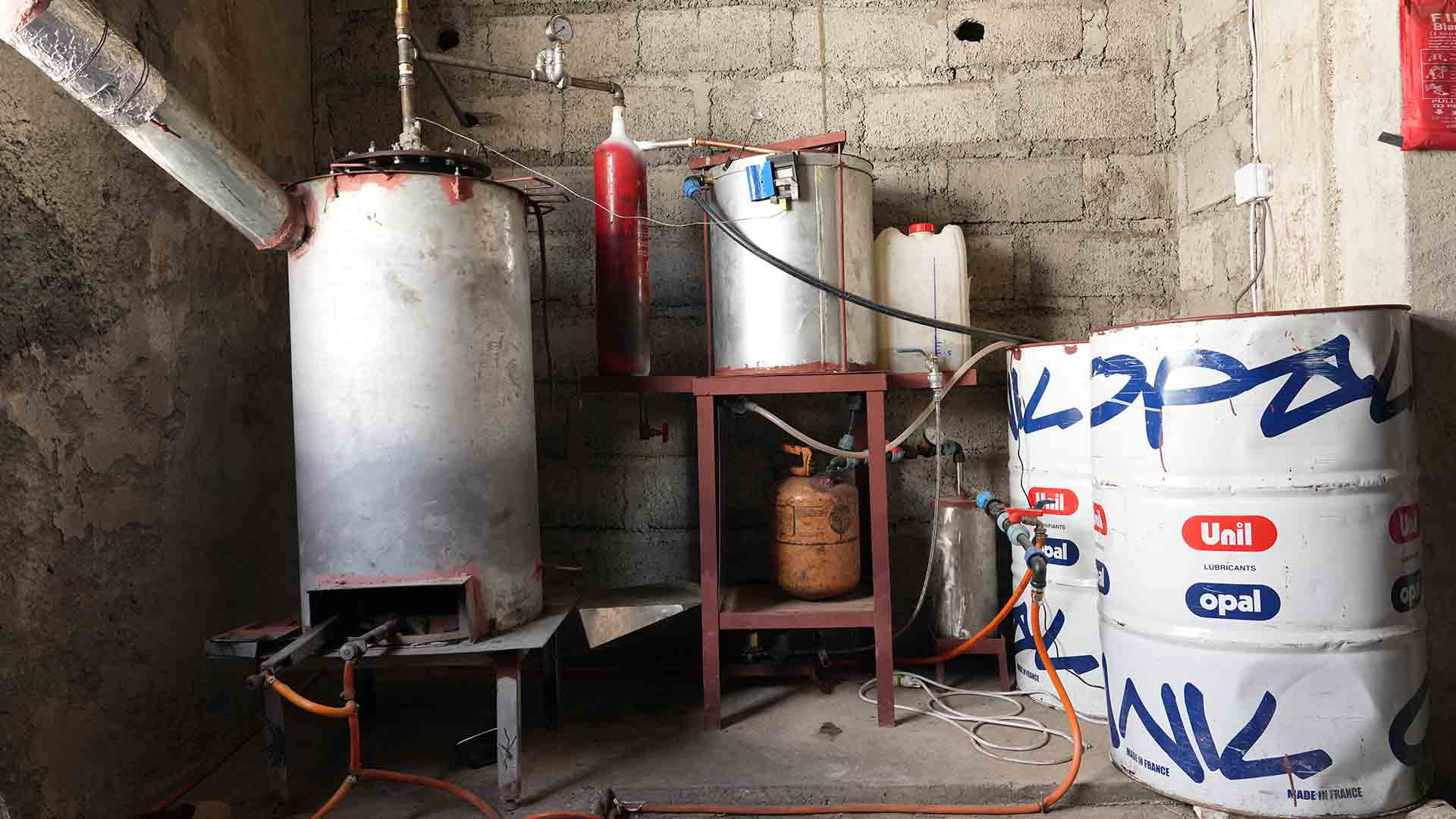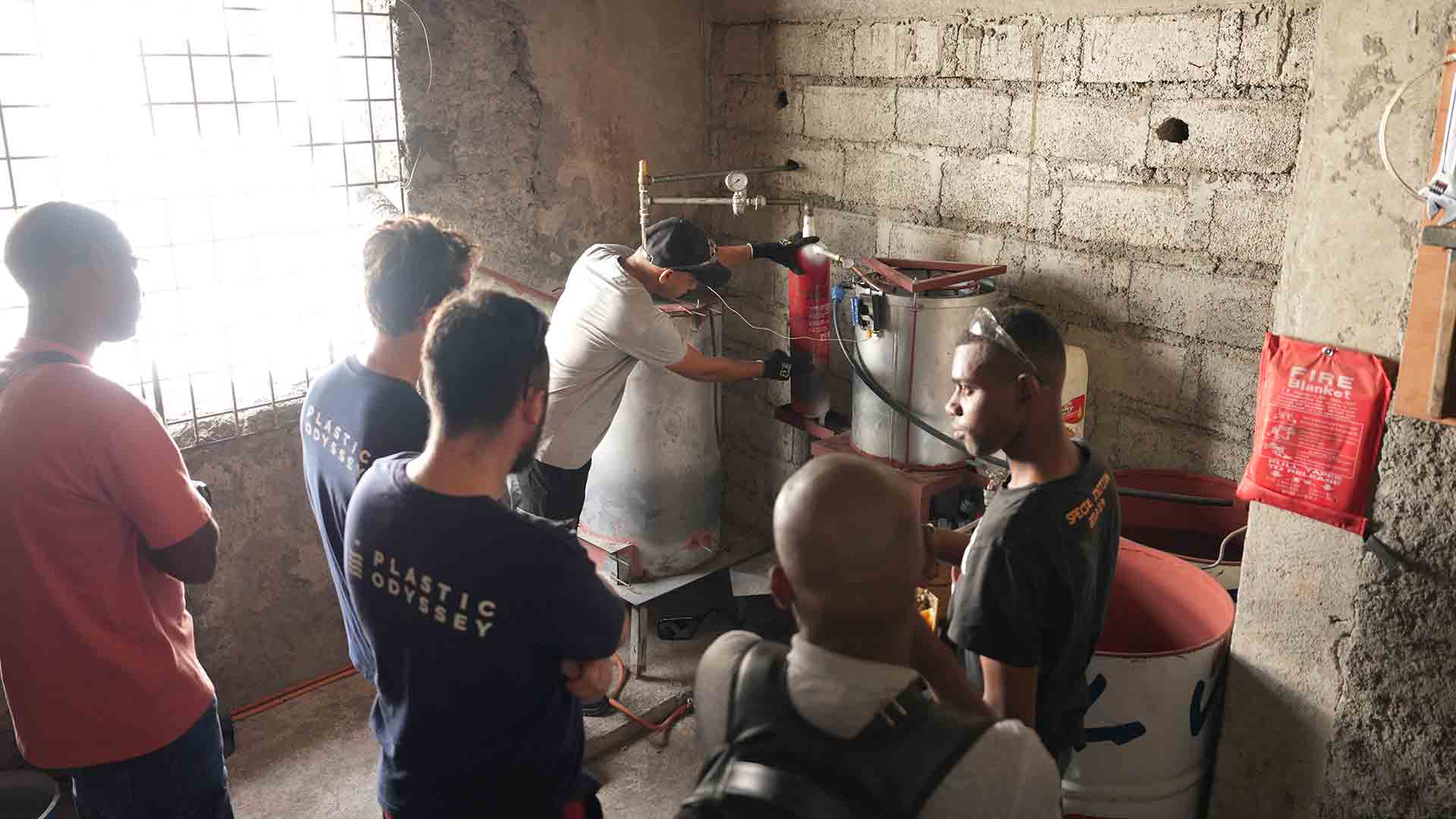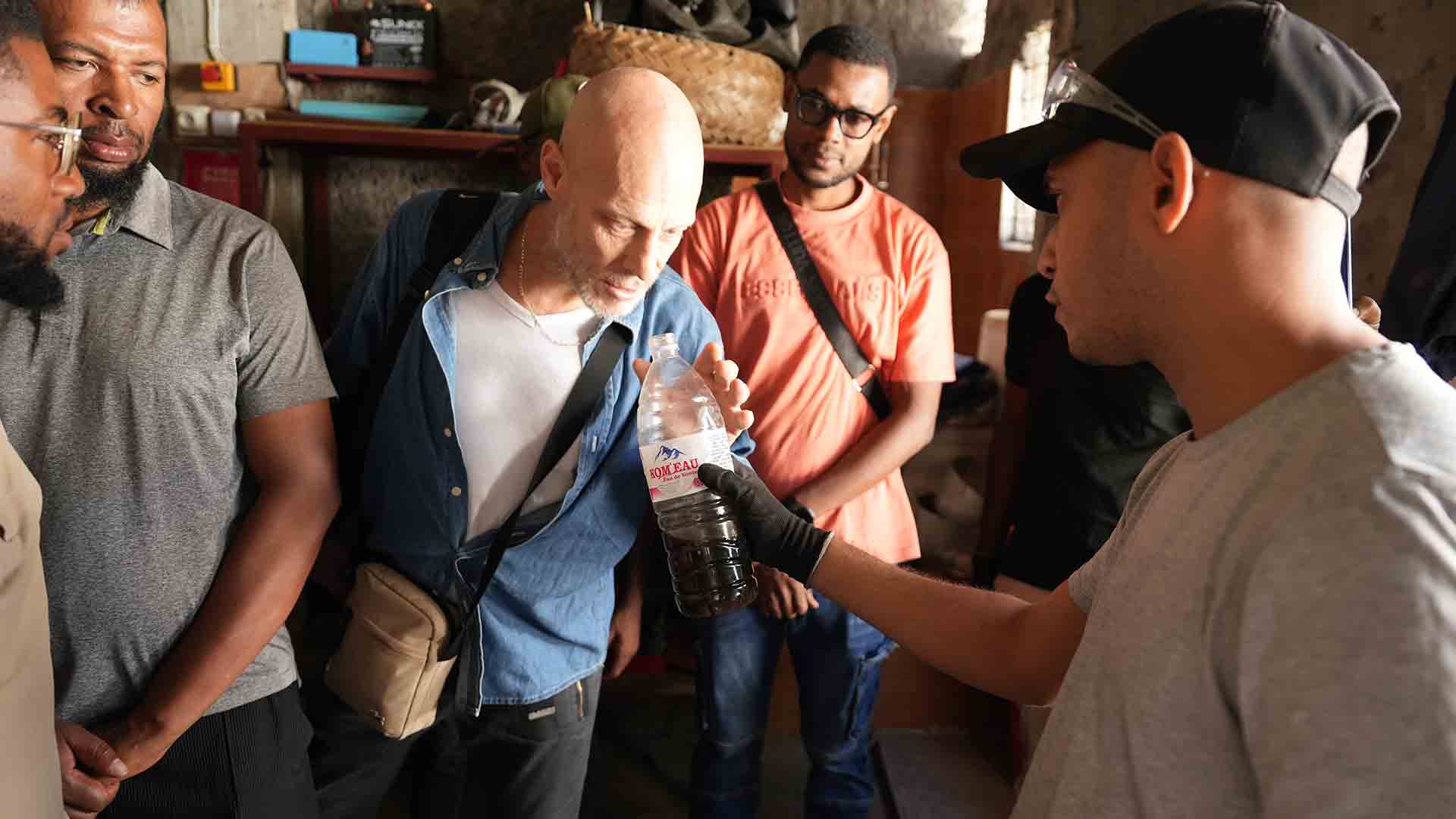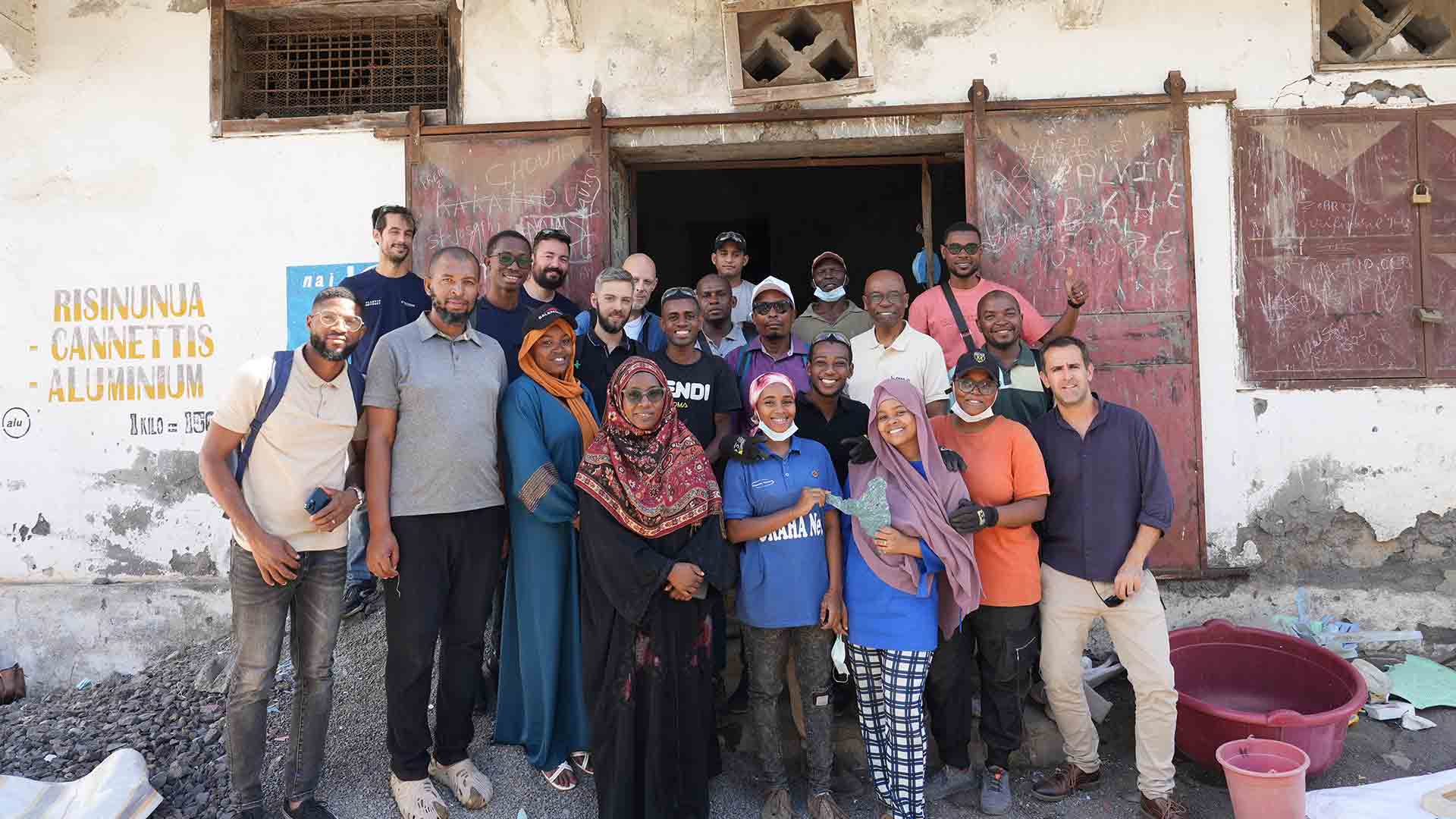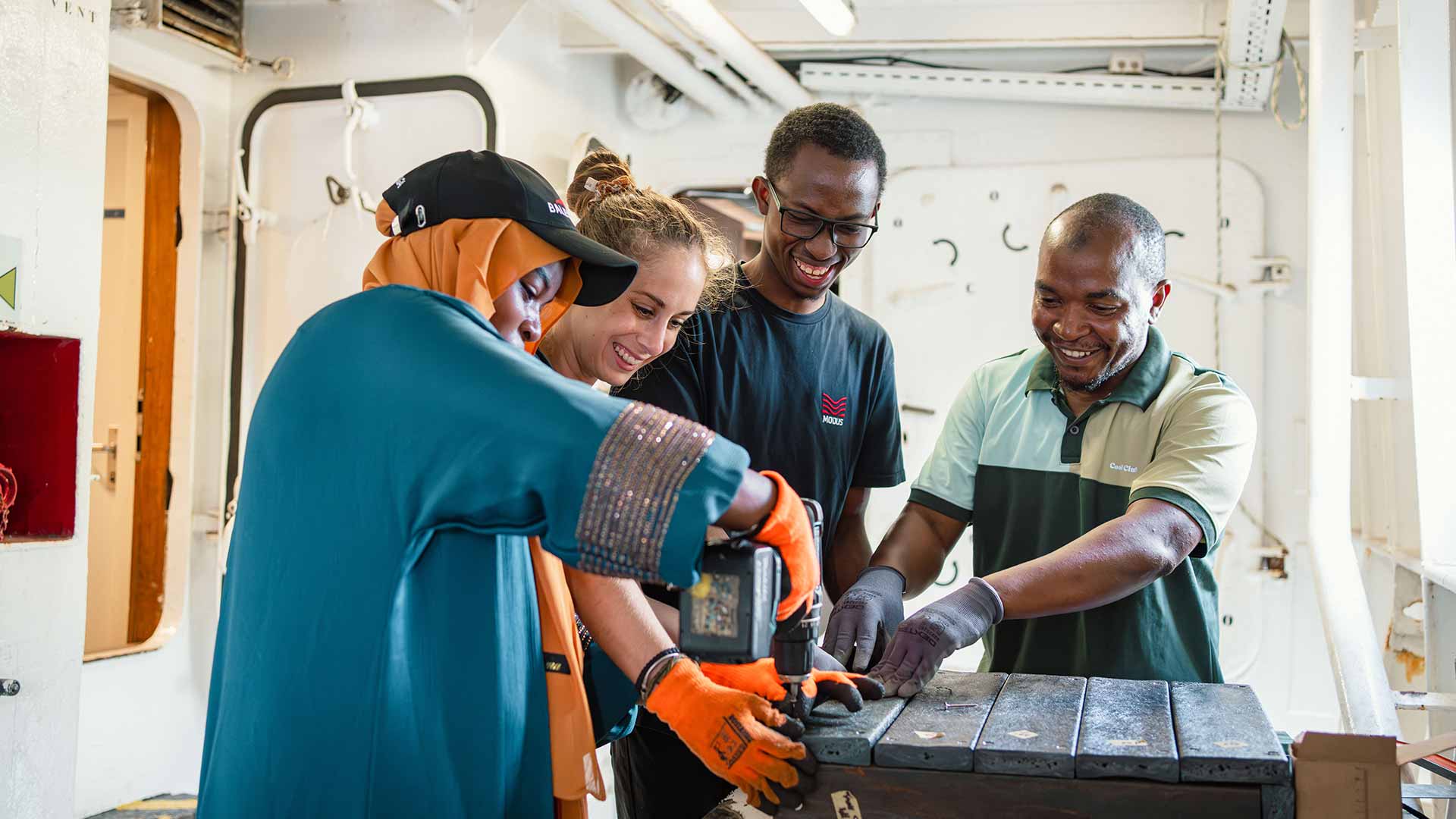
Comoros: An Archipelago In Search Of Sustainable Waste Solutions
While waste management remains a colossal challenge in the Comoros archipelago, the Plastic Odyssey ship dropped anchor in Mohéli, Grande Comore and Anjouan for field visits. For several days, entrepreneurs, associations, local authorities and NGOs gathered on board in Mutsamudu for the 28ᵉ edition of the OnBoard Lab program. An immersion in a territory where everything has yet to be invented, but where the first building blocks of a local circular economy are beginning to be laid.
Open dumps due to lack of infrastructure
On the three main islands, waste management is still largely informal. In the absence of structured waste collection, and often even of dedicated dumping grounds, waste is burned or abandoned in improvised areas, sometimes at the roadside or on the coast.
Faced with this lack of public service, groups of citizens and associations are taking up the slack. Village associations take care of waste management on a voluntary basis, collecting it at regular intervals and even collecting a fee directly from households to finance the fuel for their vehicles.
Meet the Entrepreneurs
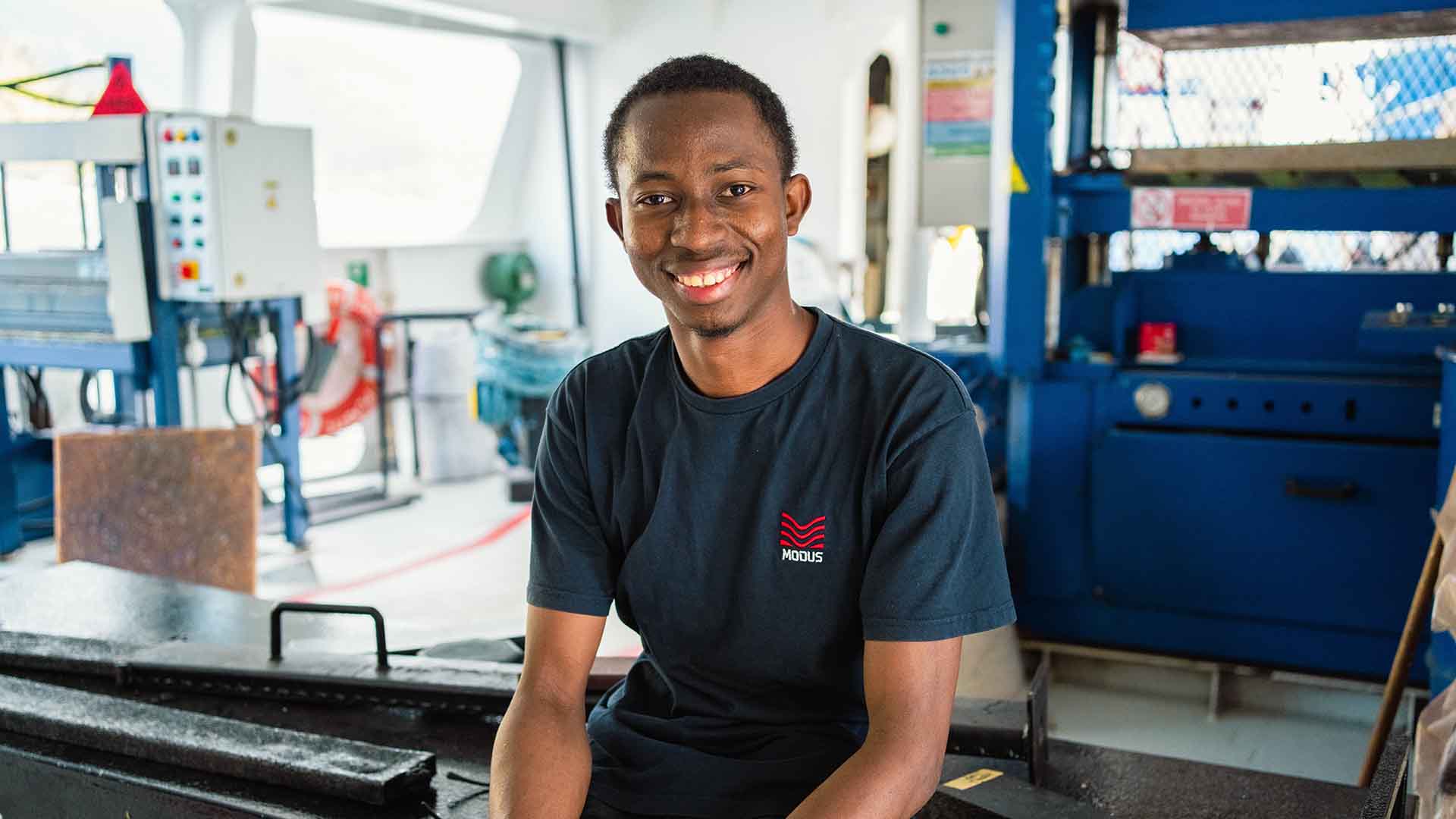
Mahfouz Ben Ali Saindoune – General Secretary of the Voija Voija association in Mirontsy (Anjouan)
Founded by young people aged 15 to 20, the association now has 30 members has been organizing weekly collections since 2015. Starting by collecting waste for free, some residents offered them gasoline to encourage them to continue. In the end, the town council bequeathed them the collection truck, which soon broke down, but thanks to a system of voluntary contributions, they were able to buy a new second-hand truck. To pay for their petrol, they charge local residents 150 francs (30 eurocents) for a bag of rice filled with garbage during the changeover. All members are volunteers, and the association now combines waste collection, animation and artistic projects.
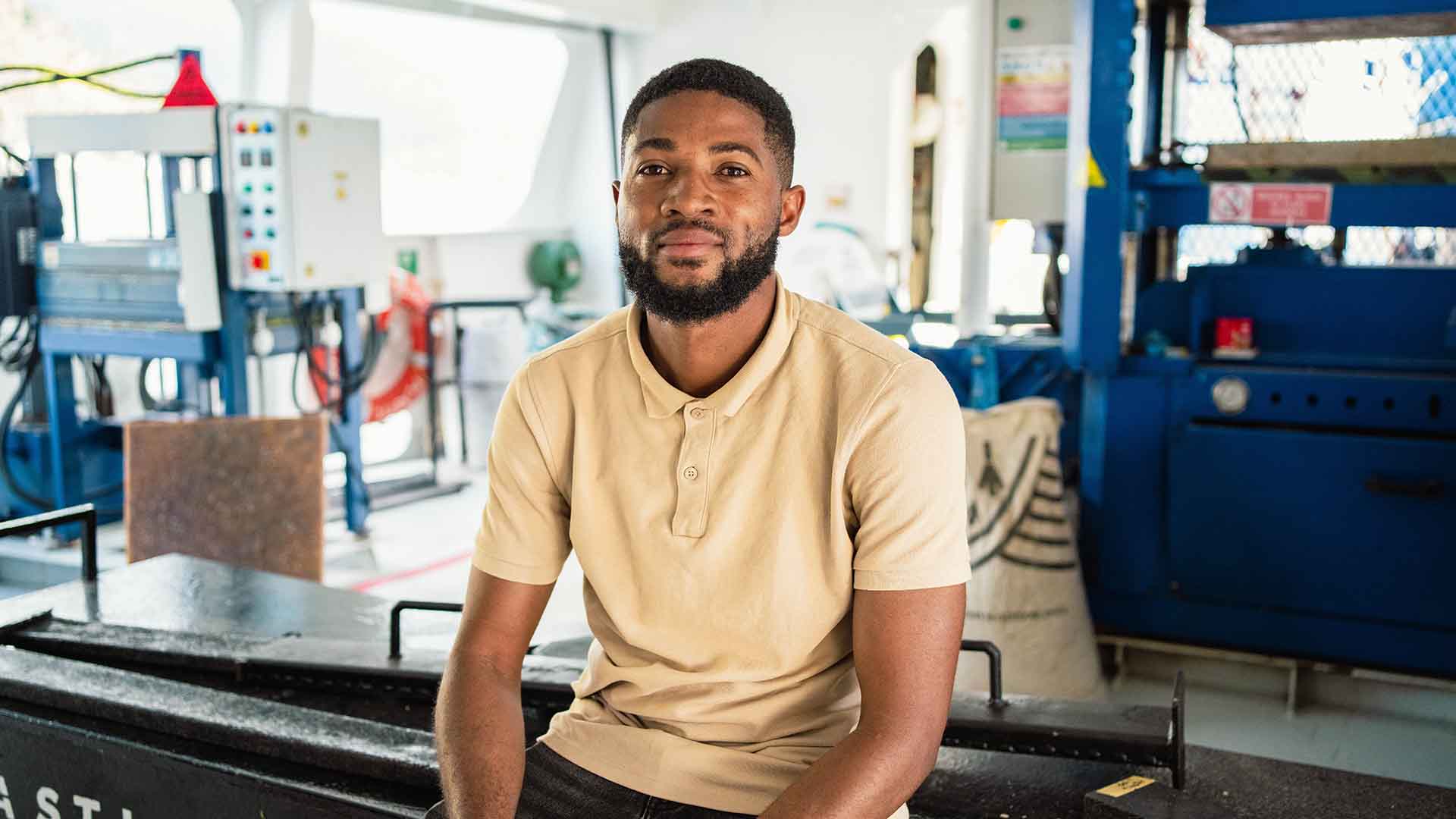
Mohamed Abdou – AJDEM Monimoimdji Youth Association for Development and the Environment
In Fomboni (Mohéli), his association, founded in 2019, collects the waste of 580 households on a voluntary basis, offering them a rate of €2/month. They come three times a week, thanks to a truck (financed by the AFD), 3 motorcycle tippers (financed by the Turkish Embassy) and a team of 5 lightly compensated people who work hand in hand with the 30 or so other members of the association. With no designated landfill site made available by the town council, the waste ends up in the wild. In spite of this, the team continues its mission, making its waste management equipment available to other community associations grouped together in KADEF, and thus raising the profile of waste management in Fomboni. They were trained by the Madagascan association Madacompost in composting biowaste, but due to lack of viability, the project did not last.
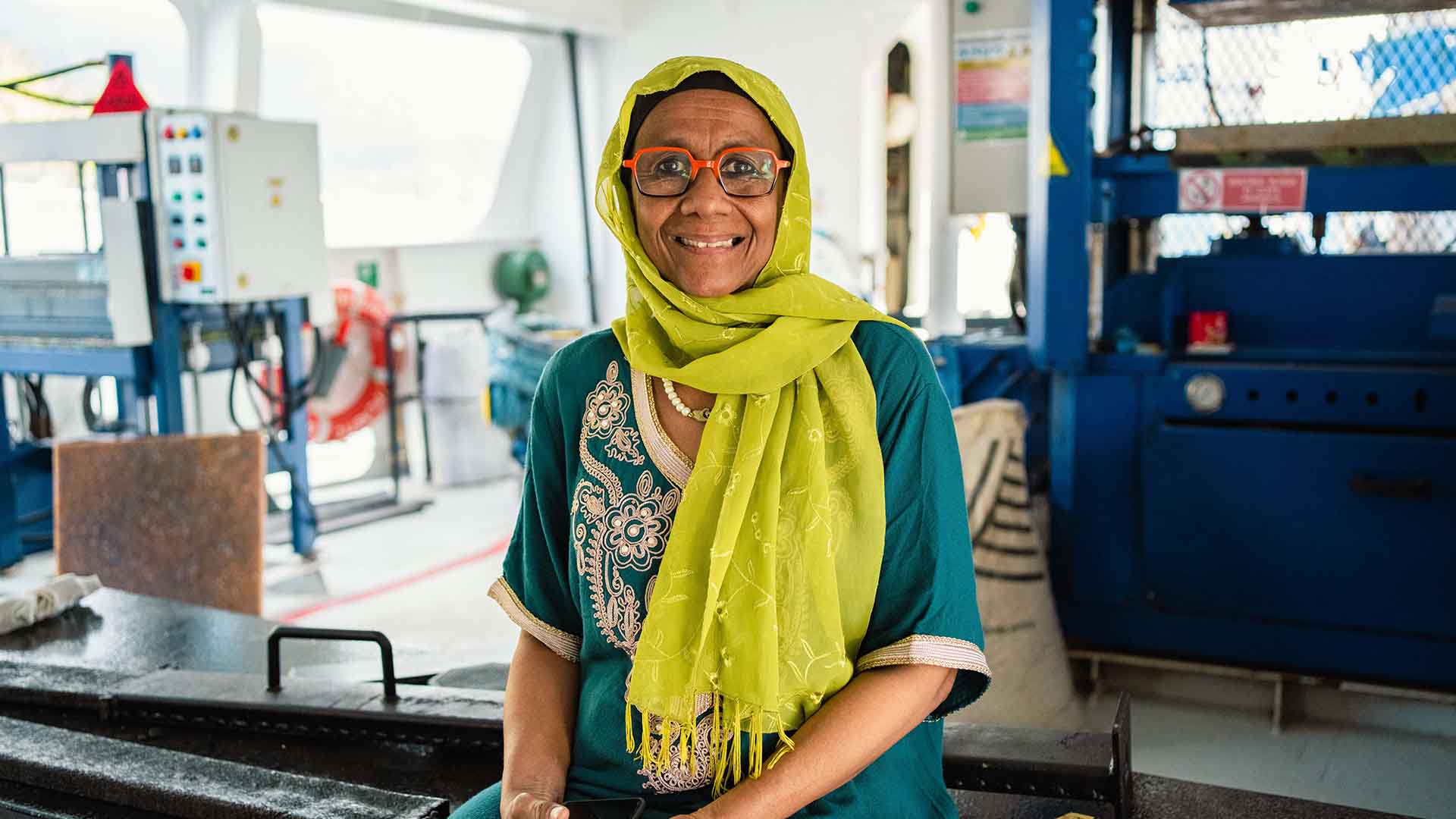
Mariama Abdallah – AFAM
The Association Femmes Actives de Mutsamudu (Anjouan) is a driving force at local level. By appealing to the diaspora and responding to calls for tender, it has succeeded in financing two trucks and two motorcycle tippers made available to the town council to help them manage the town’s waste. AFAM was also behind the opening of the town’s first official landfill site. With 120 members, including many from the diaspora, it also carries out fund-raising campaigns by organizing events to perpetuate its actions.
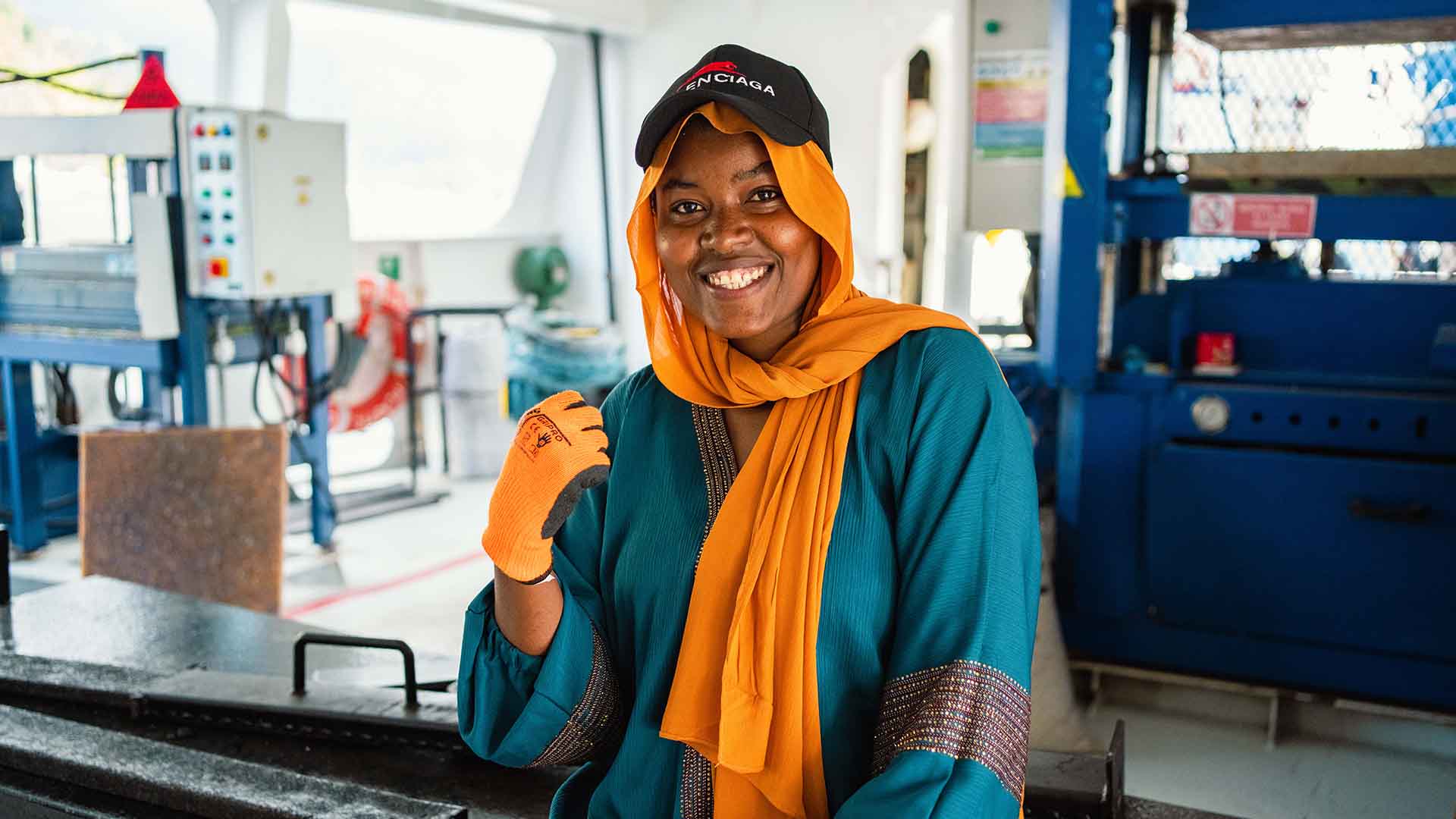
Anrifa Ali Said – Mon Pays la Propreté
Based in Vouani, on the island of Anjouan, Anrifa Ali Said runs a fledgling project in a village where no community waste management association is yet in place. The local situation is critical, marked by a visible accumulation of waste and the absence of structured solutions.
Motivated by a sense of urgency and a desire to make a difference, Anrifa joined the OnboardLab program with the aim of setting up a viable association in her village. She was able to draw inspiration from the journeys of Mahfouz, Mariama and Mohammed, pioneers of community management, to learn from their successes as well as their mistakes. This sharing of experiences enabled him to lay the first concrete foundations of his initiative for a future community organization in Vouani.
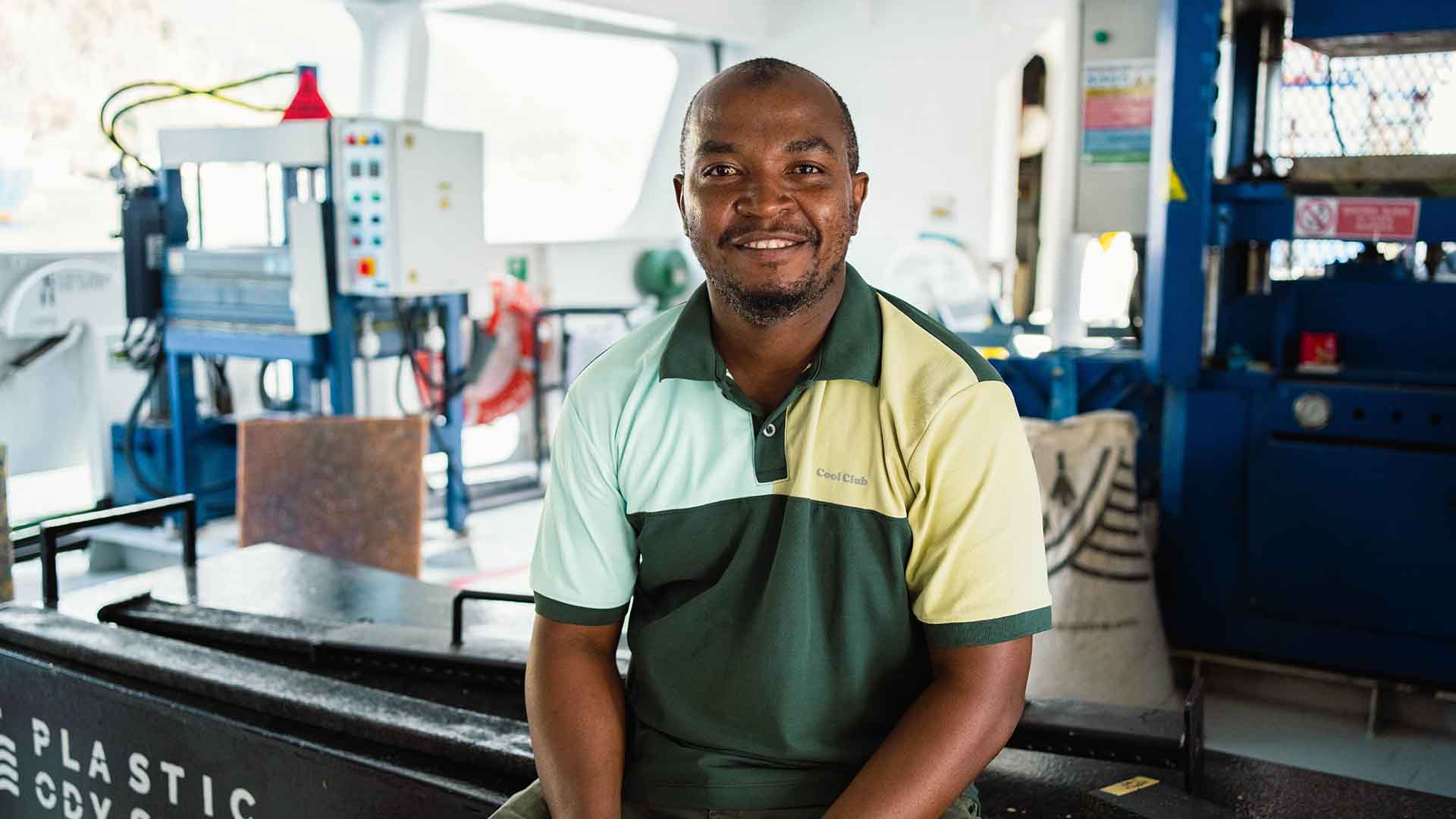
Hissani Adelaide – ANGD
Hissani Adelaide is the Mohéli representative of the Agence Nationale de Gestion des Déchets (ANGD), a young government agency founded in 2020. The agency’s stated aim is ambitious: to coordinate public policies, provide a framework for private, associative and institutional initiatives, and promote the recovery of all types of waste in order to protect the environment and guarantee a healthy living environment for Comorian citizens.
In the field, however, ANGD is still struggling to establish itself as a structuring player. In Mohéli, thanks to one-off funding, the agency has set up a waste management center and acquired three compactors to launch a PET plastic export business. But in the absence of identified commercial outlets, and with the initial project having run out of funds, the business is now on hold, awaiting new funding to relaunch the initiative.
The emergence of waste management and recycling projects
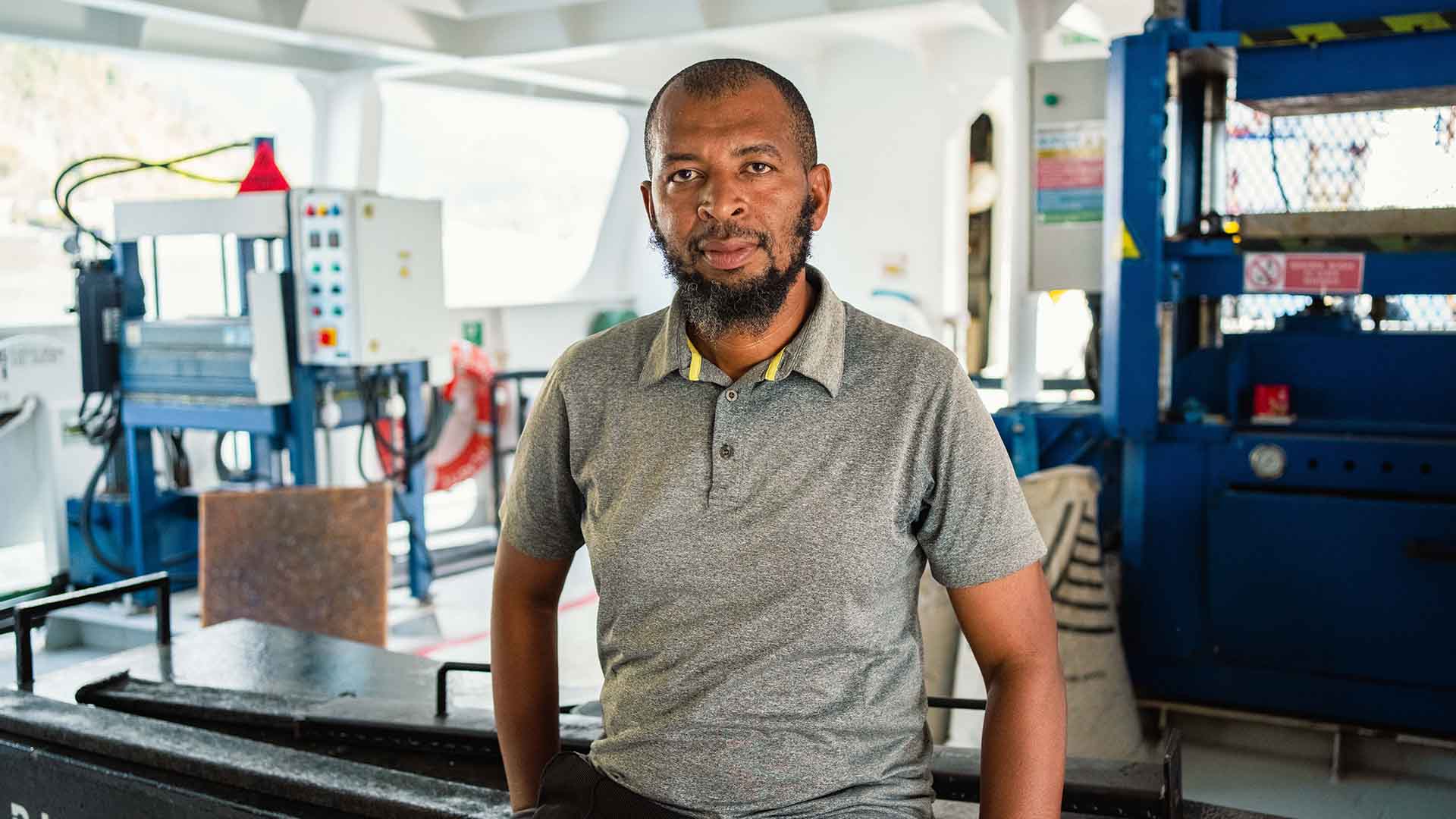
Said Bouhari Omar – Urahafu
In Anjouan, the Urahafu association (Union des Ressources de l’Agriculture, de la Pêche et de l’Environnement), created in 2020, initially focused on agricultural and fishing issues. It quickly extended its scope to include waste management, bringing together, like KADEF in Mohéli, a dozen community associations working to keep their neighborhoods clean.
Said Bouhari Omar, a technician with the association, oversees several local waste recovery projects. Experiments include the artisanal manufacture of recycled plastic paving stones and the production of cardboard-based charcoal. These initiatives are still struggling to find a viable, sustainable model, but two new projects currently underway look more promising: the design of burners running on used oil, and the development of solar drying systems for mango preservation.
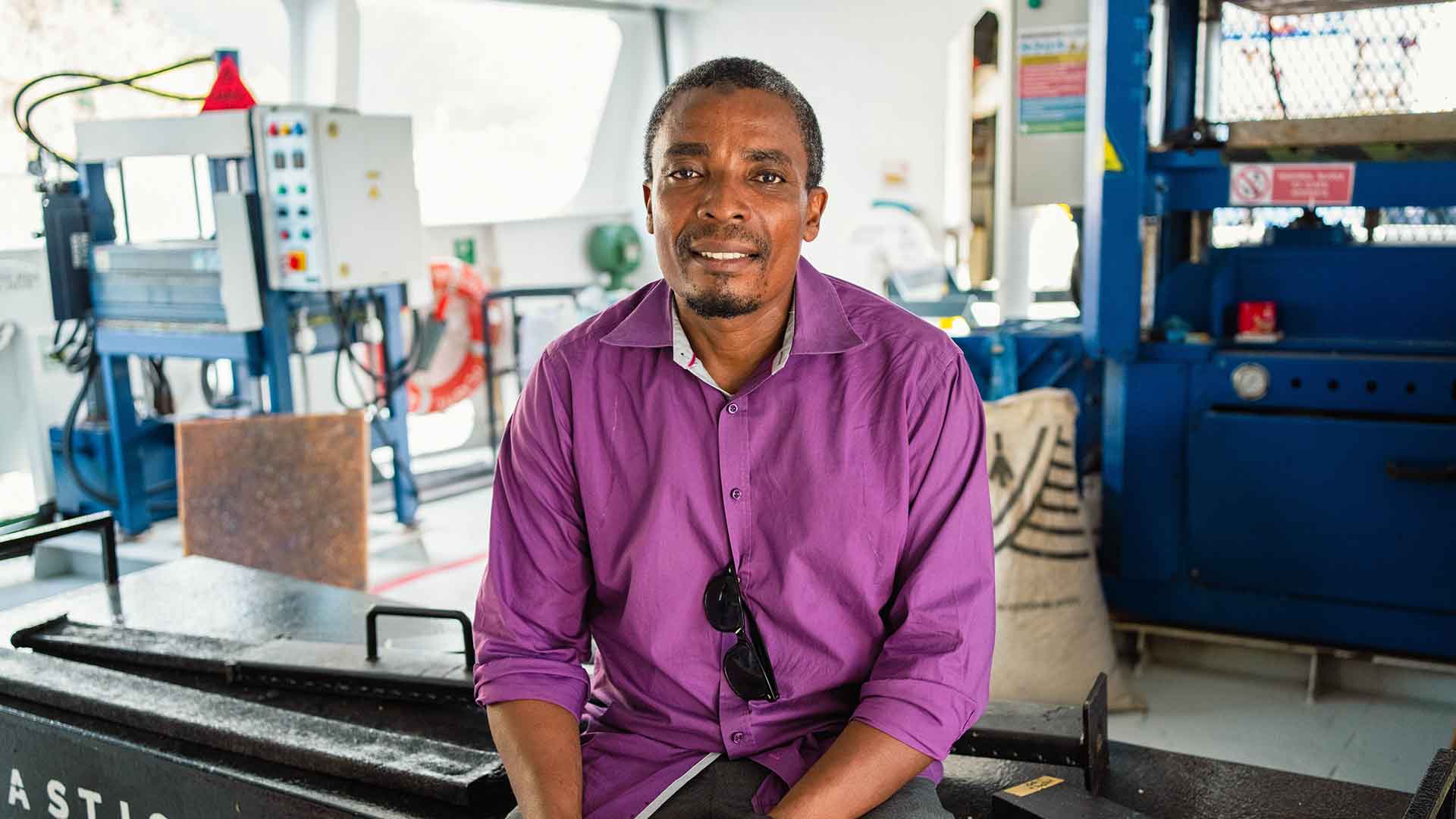
Nassim Ali – Recyvie
Founded in 2024 in Mitsamiouli (Grande Comore) by three young Comorian entrepreneurs, Recyvie is the first private company to win a municipal waste management contract for a commune of 15,000 inhabitants, where each household contributes €3 a month. With two trucks and two motorcycle tippers, the team collects waste, offers advisory services to businesses, and is developing a local recycling workshop housed in a fully-equipped container (compactor, shredder, melter and carpentry equipment).
Housed at Innovent’s photovoltaic park, the company benefits from access to energy and solid support. The town council has also made available a plot of land to create a controlled landfill, where waste will be burnt in the open air, with the aim of putting an end to illegal roadside dumps. But this solution, which is considered to be temporary, does not entirely satisfy Nassim, who is mainly involved in material recovery.
With over €80,000 invested in the equipment, Recyvie aims to produce furniture in recycled plastic. The first parts, still in prototype form, were produced with the help of Plastic Odyssey teams during their stopover. The company now employs 8 full-time staff.
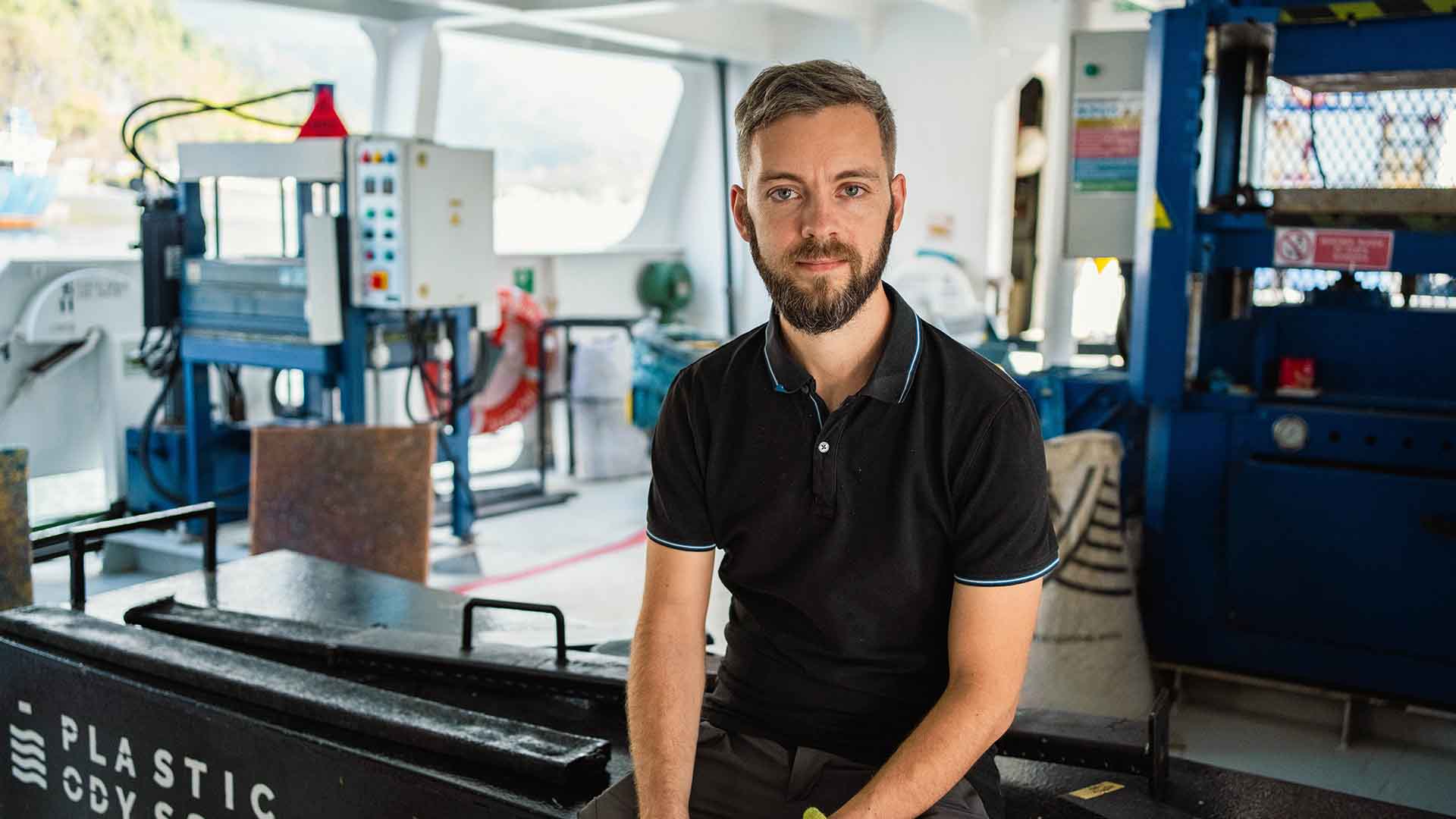
Clément Robert – Naipenda
In Anjouan, the NGO Naipenda, supported by PartnerAid and funded by the French Embassy, has been exploring innovative solutions for recycling plastic since 2015, in particular via pyrolysis. After experimenting with handmade machines inspired by Precious Plastic (shredder, extruder, plate press), the team is now focusing on an ambitious project: transforming plastic waste into alternative fuel for ylang-ylang distilleries.
Led by Clément Robert, a French engineer, alongside Muslim, a young Comorian engineer, Naipenda has designed a first local pyrolysis prototype capable of processing up to 50 kg of plastic per day with an investment of less than €2,000. This prototype was developed with the help of local boilermakers, who are used to making traditional ylang-ylang distillers. The team now numbers 8 people, and aims to strengthen this low-tech technology to make it a viable solution for local energy chains.
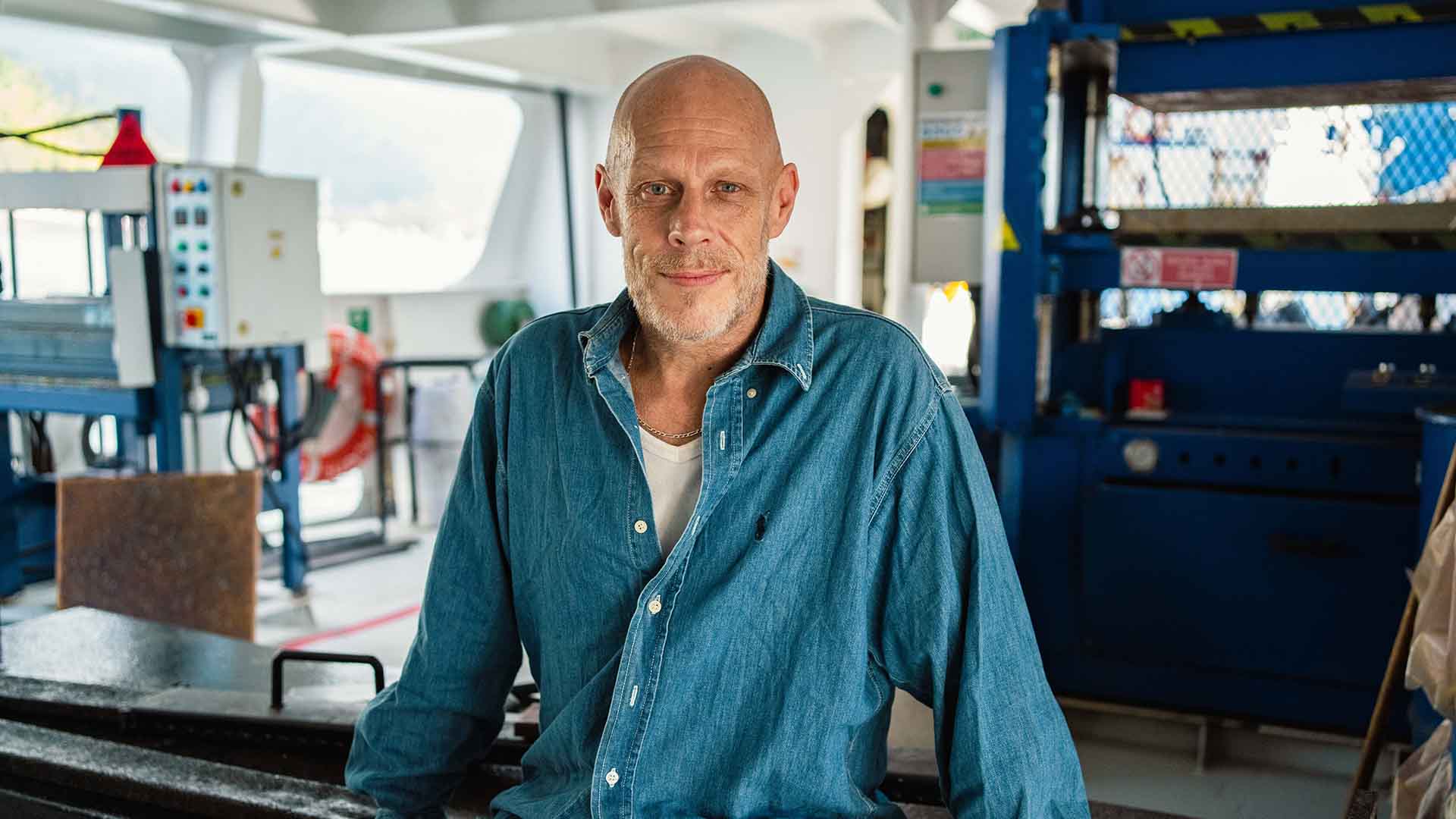
David Bourgeaux – Ecopaf
On Grande Comore, Ecopaf is a young company founded in 2024, specializing in the local manufacture of interlocking paving stones, cinder blocks, bricks and cement wall cladding. Already profitable thanks to its traditional construction activities, the company is now looking into the possibility of integrating recycled plastic into its products.
Committed to the ecological transition and concerned about the omnipresent plastic pollution on the island, co-founder David Bourgeaux joined the program to learn about waste treatment techniques and assess the feasibility of a recycling line dedicated to the manufacture of plastic pavers. This project could represent a strategic development for the company, combining environmental impact with industrial know-how.
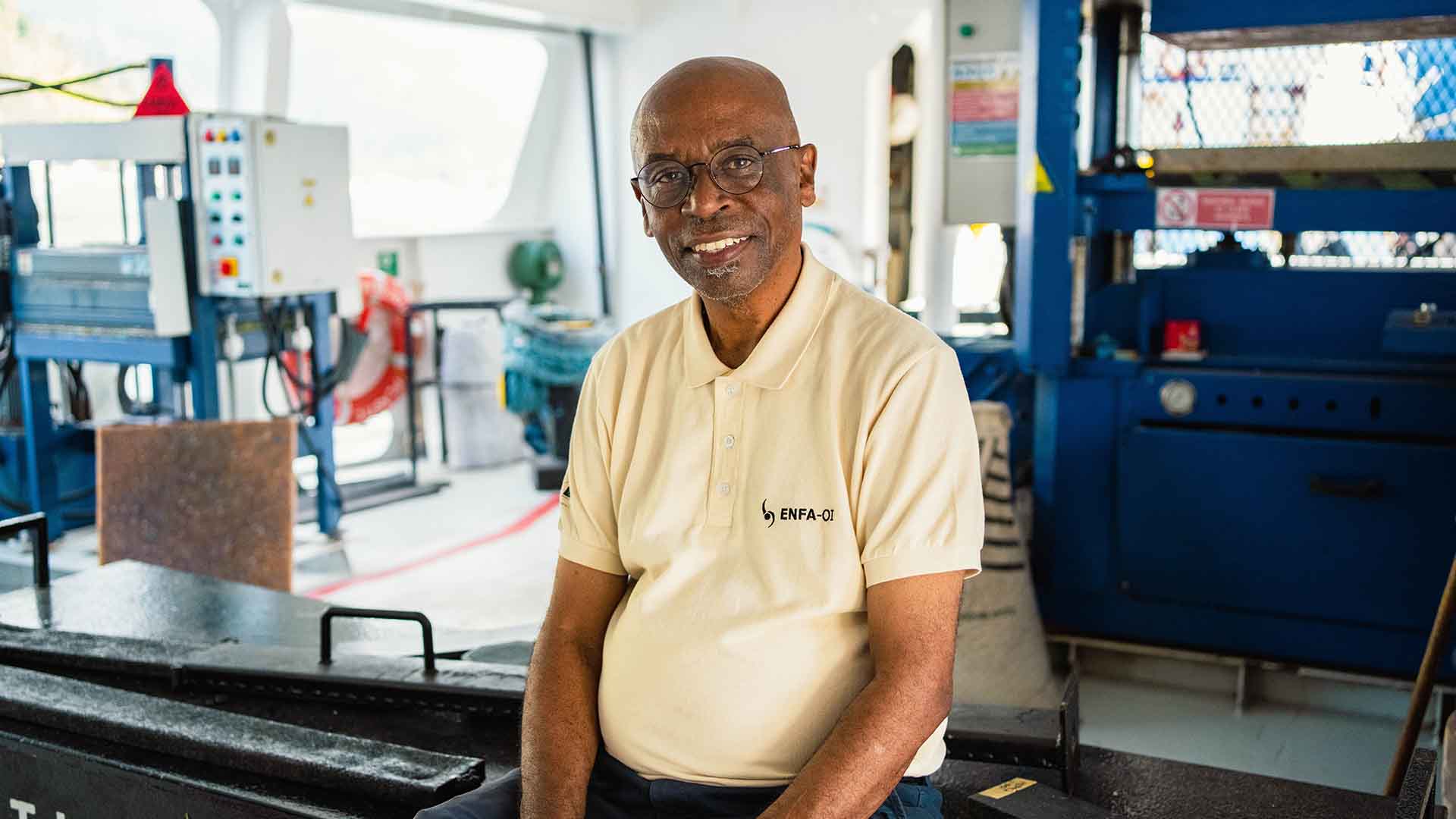
Mahmoud M. Aboubacar – Bioylang Comores
A former Comorian diplomat, Mahmoud M. Aboubacar represented the Comoros at the UN and took part in numerous Conferences of the Parties (COP) on climate. After more than fifteen years observing international debates on sustainability, he decided to take action on the ground, becoming an entrepreneur in Grande Comore.
He took over a ylang-ylang distillery, adopting an innovative approach that went against traditional practices: he replaced the use of wood as an energy source with kerosene, with the aim of limiting deforestation on the archipelago. It now aims to diversify its activities with the production of liquid soap for the local market, and has joined the OnboardLab program to identify suitable recycling solutions for its future plastic waste.
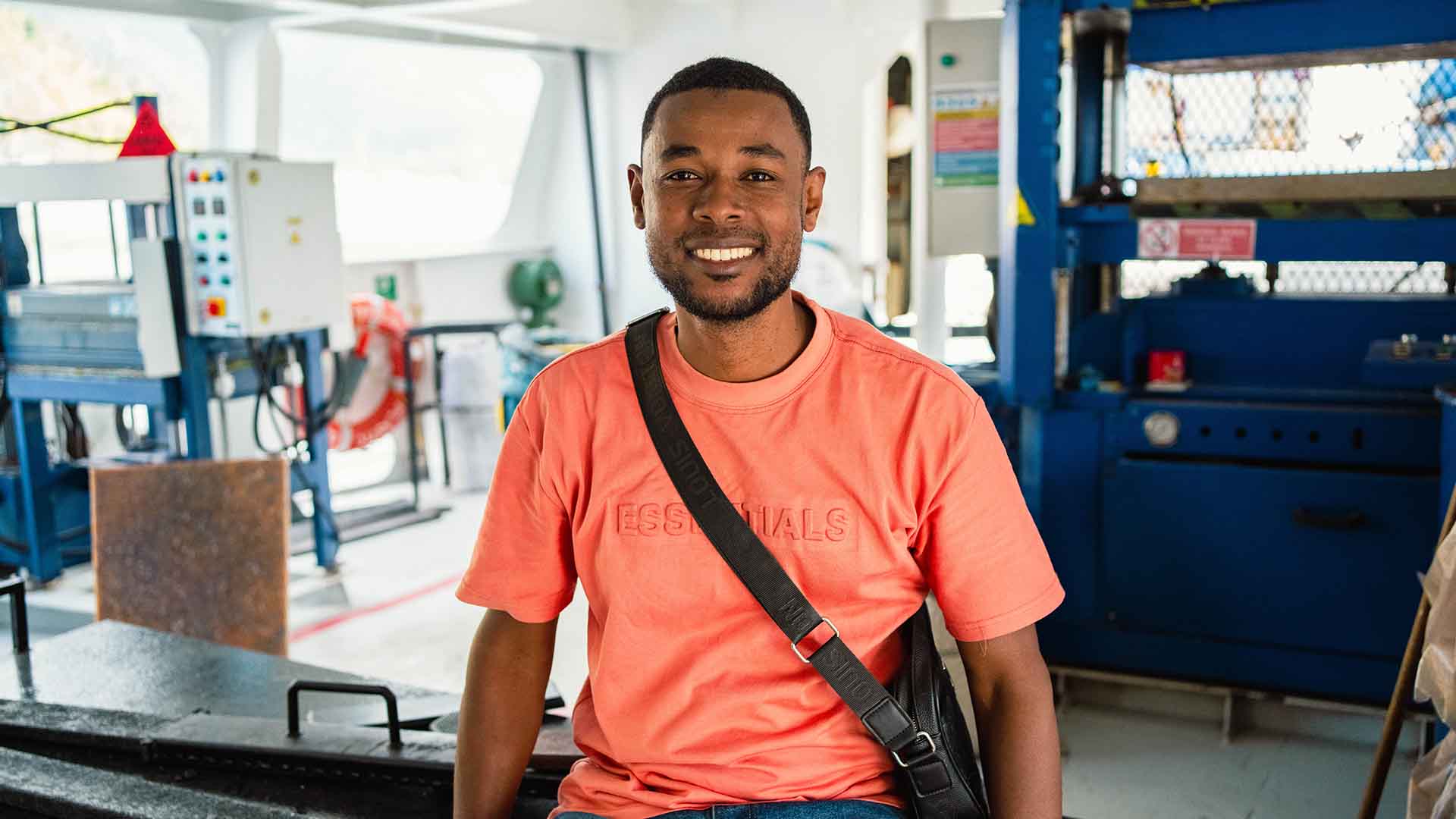
Housni Soule Mohamed – 2mains
Founded in 2006, 2mains is the only Comorian association firmly established on the archipelago’s three islands. It operates in three key areas: sustainable agriculture, access to drinking water and waste management. In 2017, it launched an ambitious pilot project for decentralized waste management in Mohéli and Grande Comore, supported by the French Embassy, GIZ, the European Union and the Japanese government, with a total budget of €700,000.
2mains is positioned to provide operational support to the Ministry of the Environment, to ensure the smooth running of the future waste treatment center. A site was identified and equipped with two balers and shredders. Japan is supplying three-wheelers, and from 2019, collection will begin gradually. The team sets up voluntary drop-off bins, co-designed with local young people. Despite the limited space available, the first installations were a popular success. Residents comply with sorting instructions, until a municipal collection crisis occurs: two weeks without collection, and full bins turn into black spots, covered in garbage. This setback illustrates the fragility of the system, especially in the absence of commercial outlets for the material collected. The project came to an end after just over a year.
Faced with this impasse, the association decided to develop a local value chain. With a further €50,000, the company is launching an initiative to manufacture paving stones in recycled plastic. An artisanal furnace is built, with a chimney, to melt a mixture of plastic and sand (14 kg of sand for 10 kg of plastic). The mixture is made by hand, then poured into molds and left to air-dry. To fuel the furnace, 2mains uses homemade briquettes made from sawdust and cardboard, know-how developed in a previous project. The work remains hard: just two batches a day, not enough to ensure the center’s economic viability.
The activity will cease definitively in 2021, but 2mains will continue to maintain the site in the hope of relaunching production and reviving the industry.
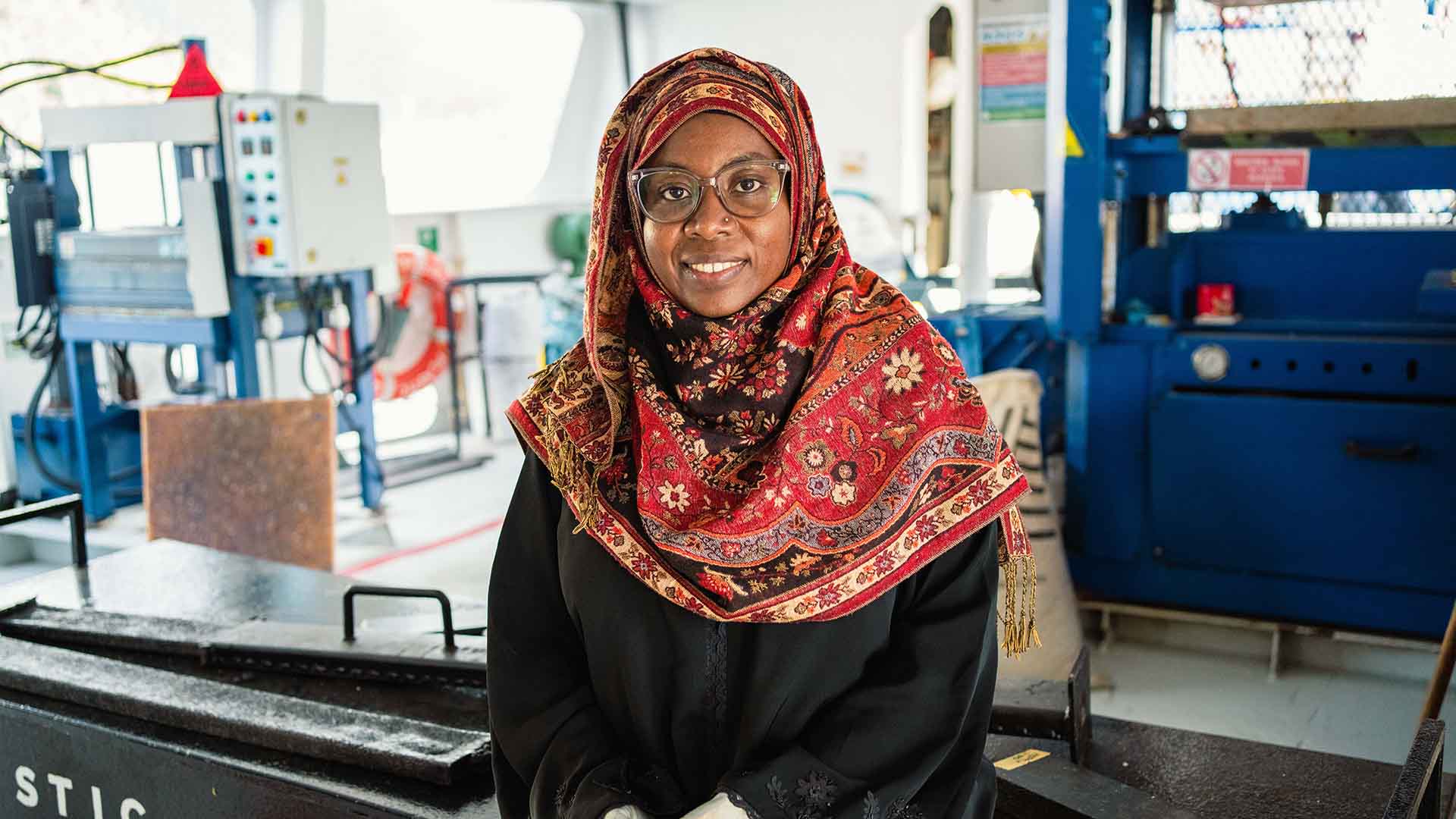
Aincha Aboubakar – UICN
Originally from Mohéli, Aincha Aboubakar is a committed Comorian, initially active in community clean-up initiatives. She went on to develop zero-waste craft practices: weaving local plants, food preservation techniques, sewing bags from second-hand textiles.
Now National Project Officer for IUCN (International Union for Conservation of Nature) in the Comoros, an international organization dedicated to the conservation of biodiversity and the sustainable use of natural resources, she oversees the Island Plast program, which supports the establishment of plastic waste collection channels throughout the archipelago. Calls for projects under this program have recently closed.
As a local representative of the IUCN, she takes advantage of the OnboardLab training to meet the players in the field, better understand their realities and strengthen her own skills to support concrete, appropriate solutions.
An inter-island dynamic to initiate change
Inter-island transport for the entrepreneurs was provided by the IOC (Indian Ocean Commission) and the Green Pact, enabling project leaders from the three islands of the Union of the Comoros to meet up in Anjouan, where the Plastic Odyssey laboratory boat was stationed. This logistical approach has ensured national representation and encouraged exchanges between players who are sometimes isolated in their own territories.
During four days of intensive on-board training, participants learned about over 150 recycling initiatives already encountered by Plastic Odyssey during its round-the-world expedition. These moments were also an opportunity for the entrepreneurs to get to know each other better, exchange experiences and identify possible synergies in the still emerging landscape of waste management in the Comoros.
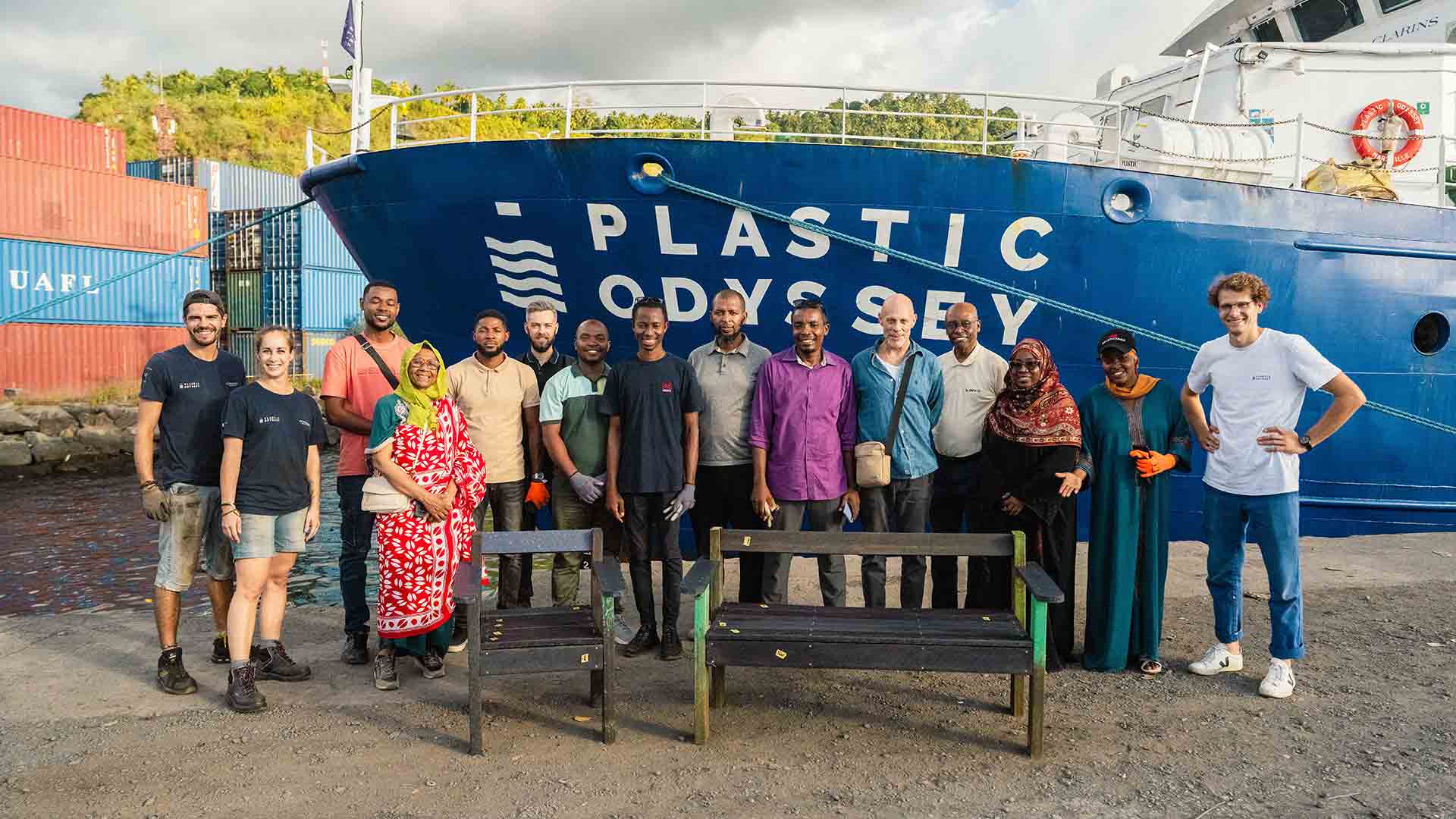
Theoretical sessions in the classroom alternated with practical workshops in the on-board recycling workshop, covering all stages: plastics identification, grinding, extrusion and assembly using carpentry tools. At the end of these workshops, the group succeeded in collectively making a bench and a chair that will equip the AFAM offices.
Exchanges also took place away from the ship: participants visited the pyrolysis project developed by Naipenda, as well as a local plastics processing site for the manufacture of PVC pipes, illustrating the industrial potential of the local plastics industry.
Finally, on the last day, the group took part in a collective clean-up operation, a symbolic moment that served to weld the participants together while initiating concrete action.
The session gave rise to numerous ideas and several structuring projects, the fruit of collective reflection. They will now be able to take advantage of current and future calls for projects in the region, to move from experimentation to concrete implementation.

OnBoard Laboratory, our incubation program for recycling entrepreneurs
At each stopover on the expedition, the Plastic Odyssey vessel welcomes on board several local recycling entrepreneurs to exchange ideas and develop concrete solutions to combat plastic pollution.

